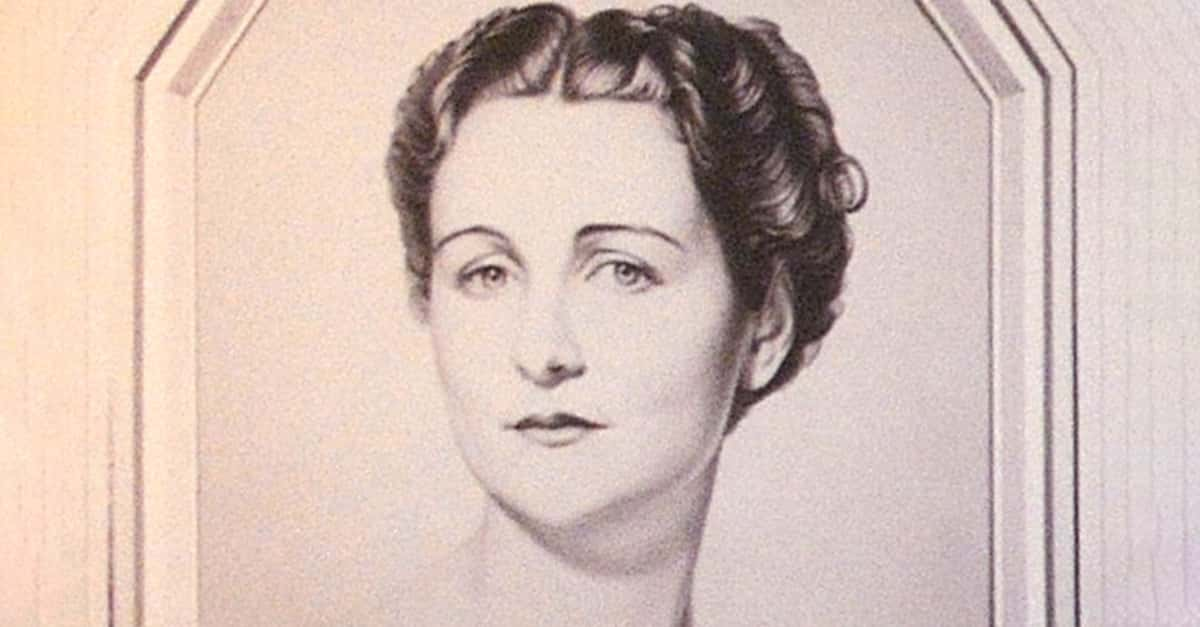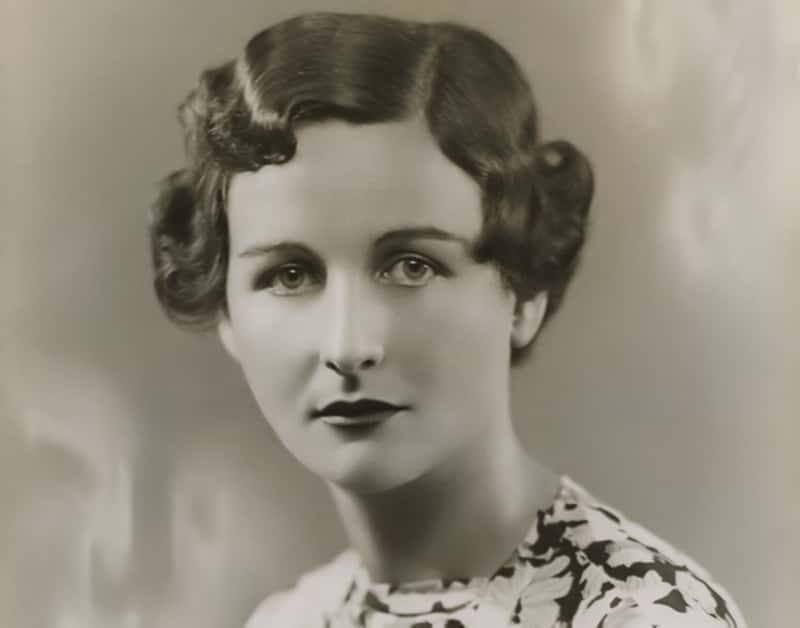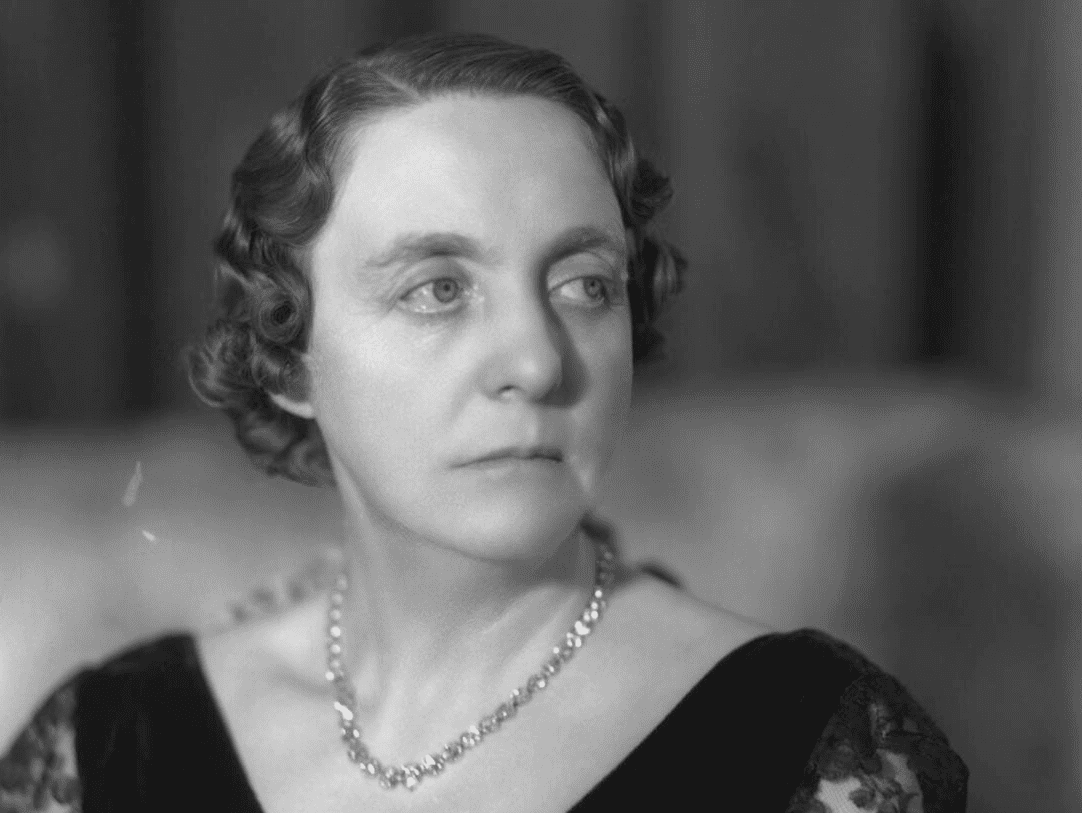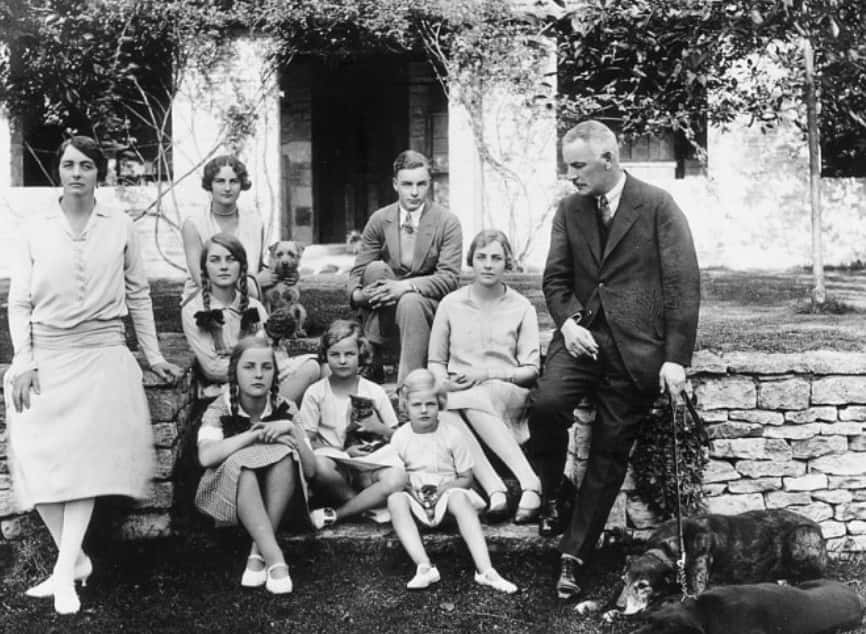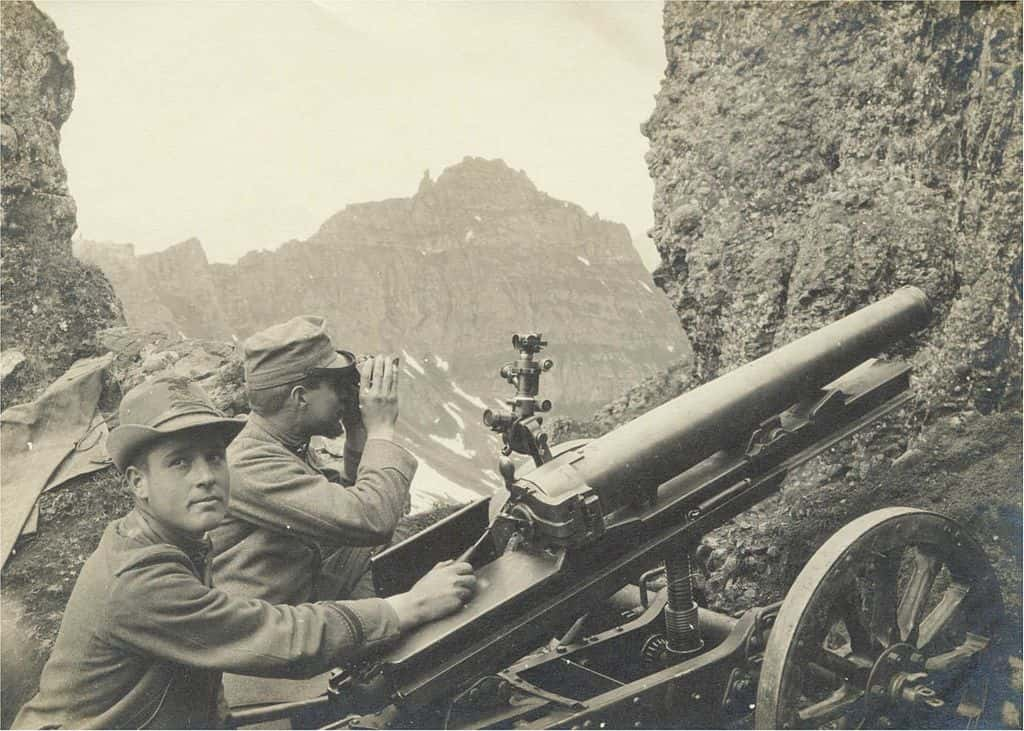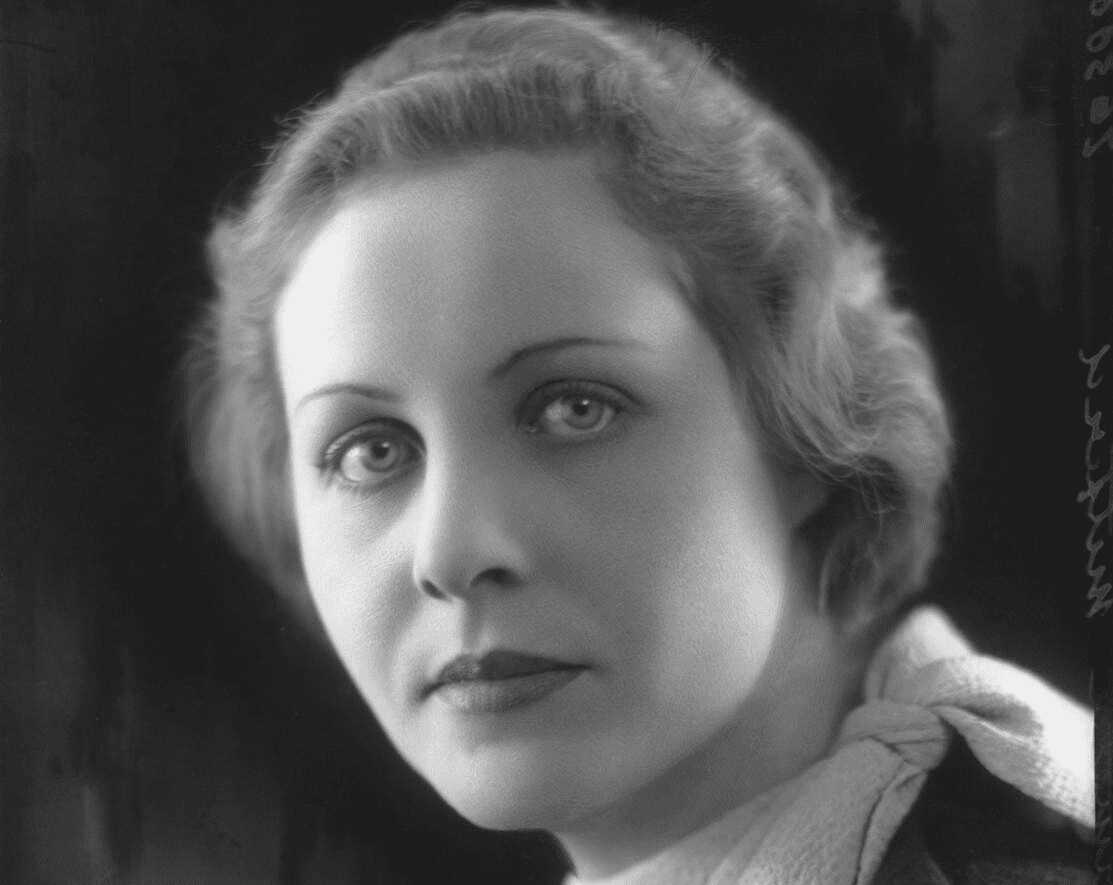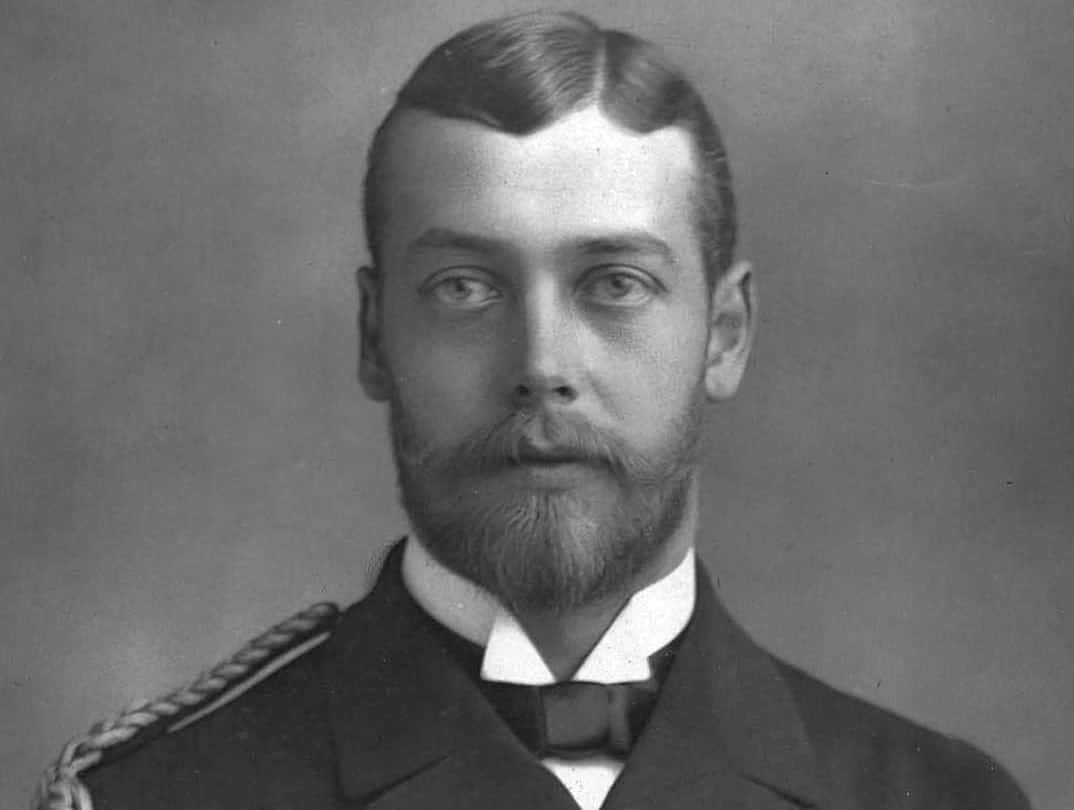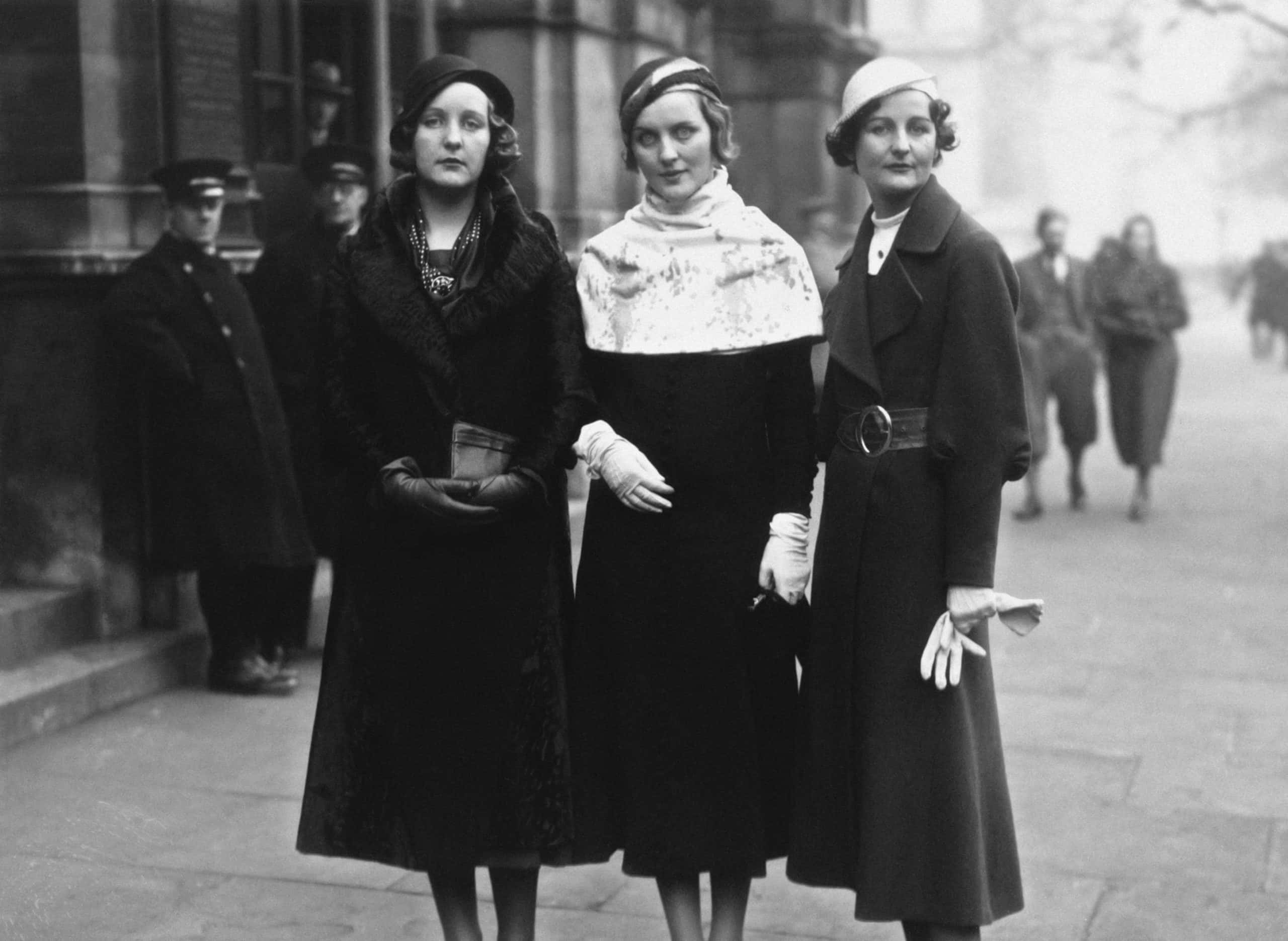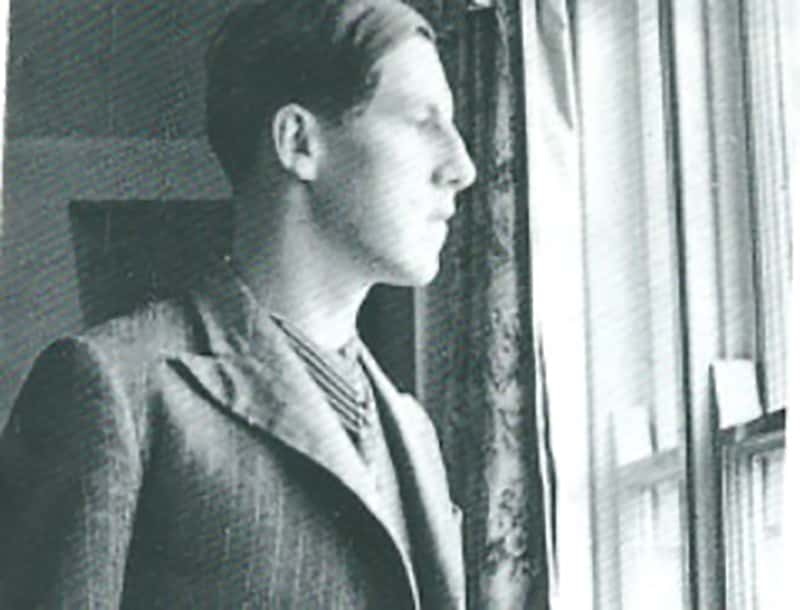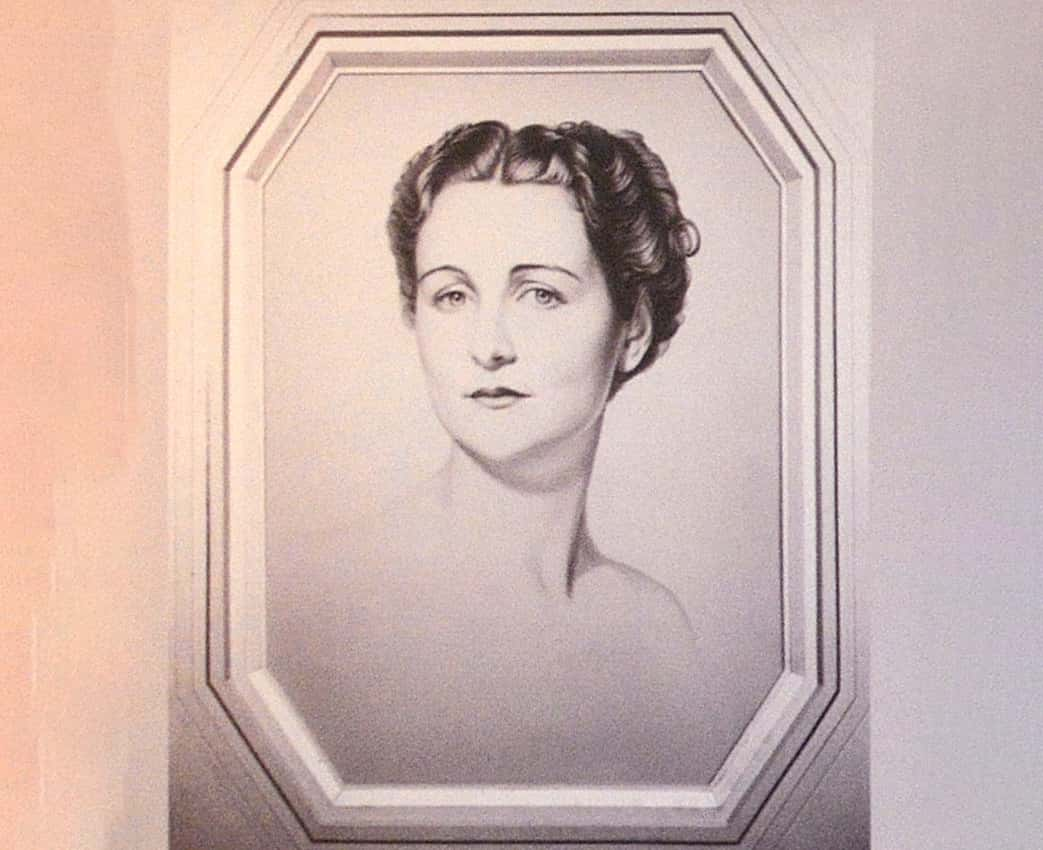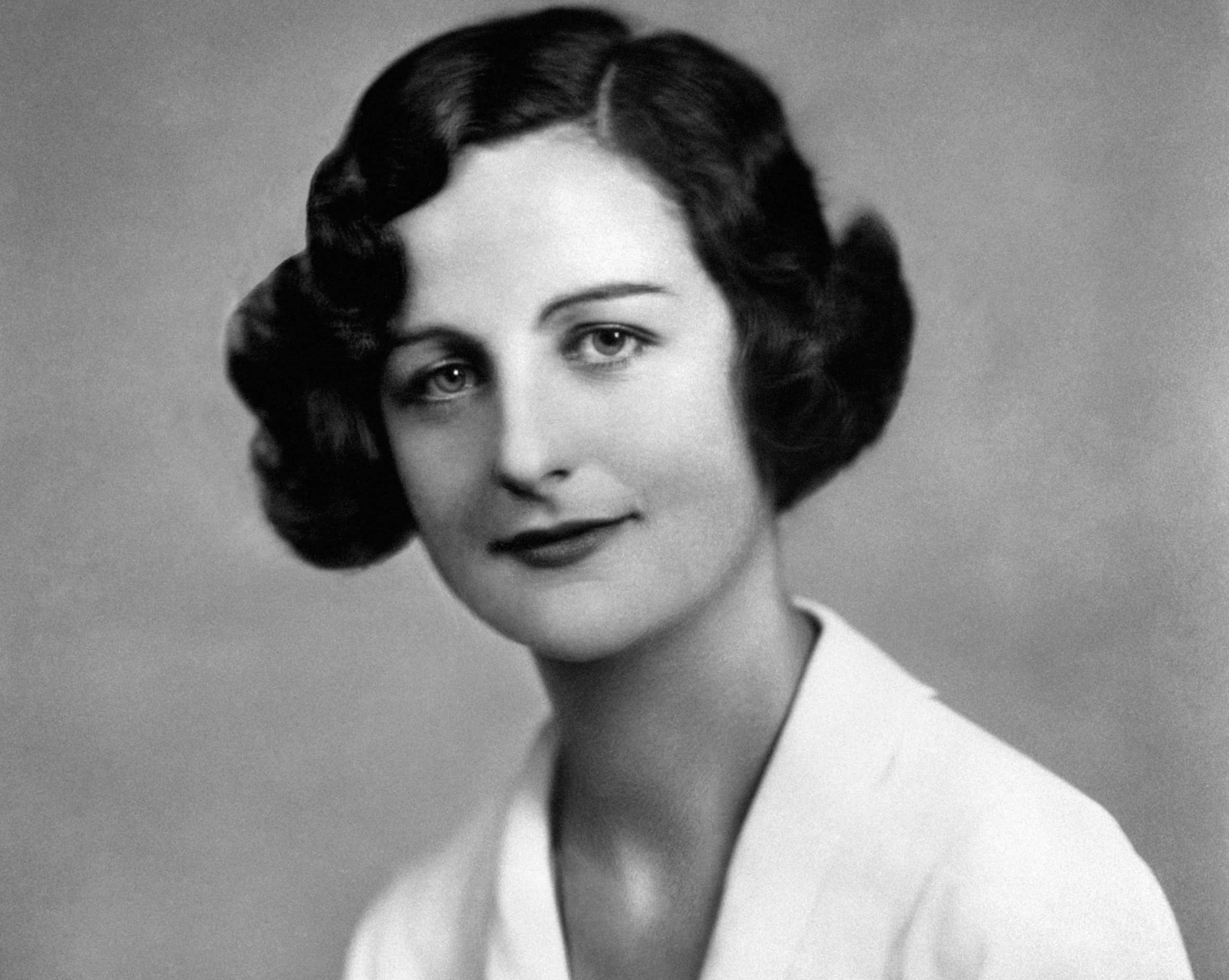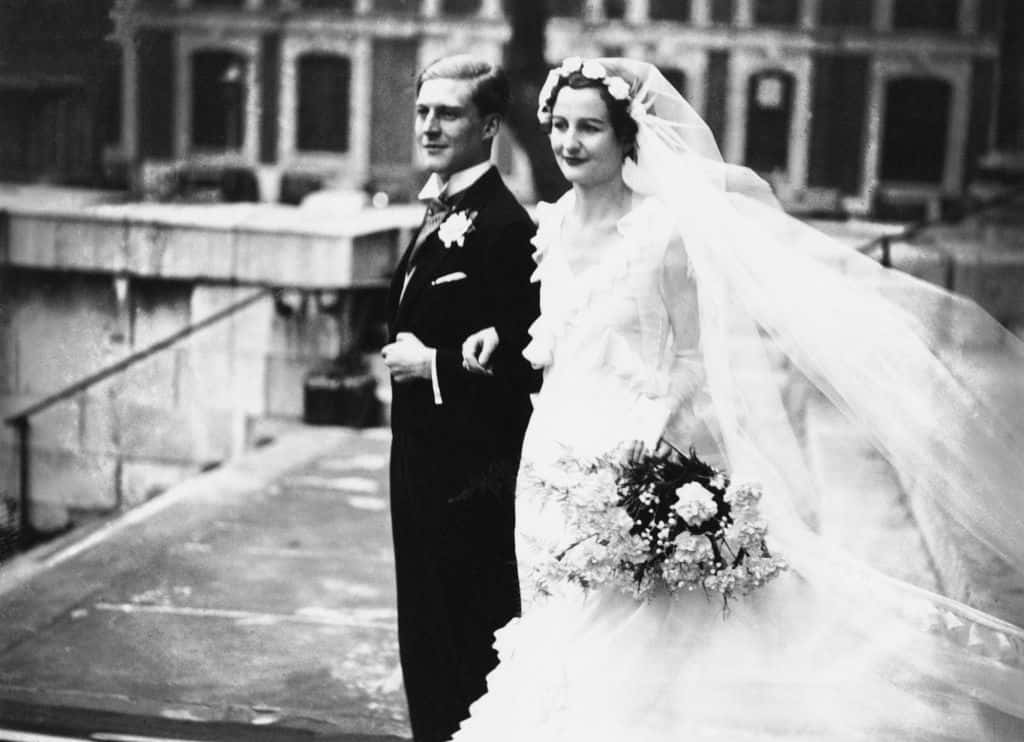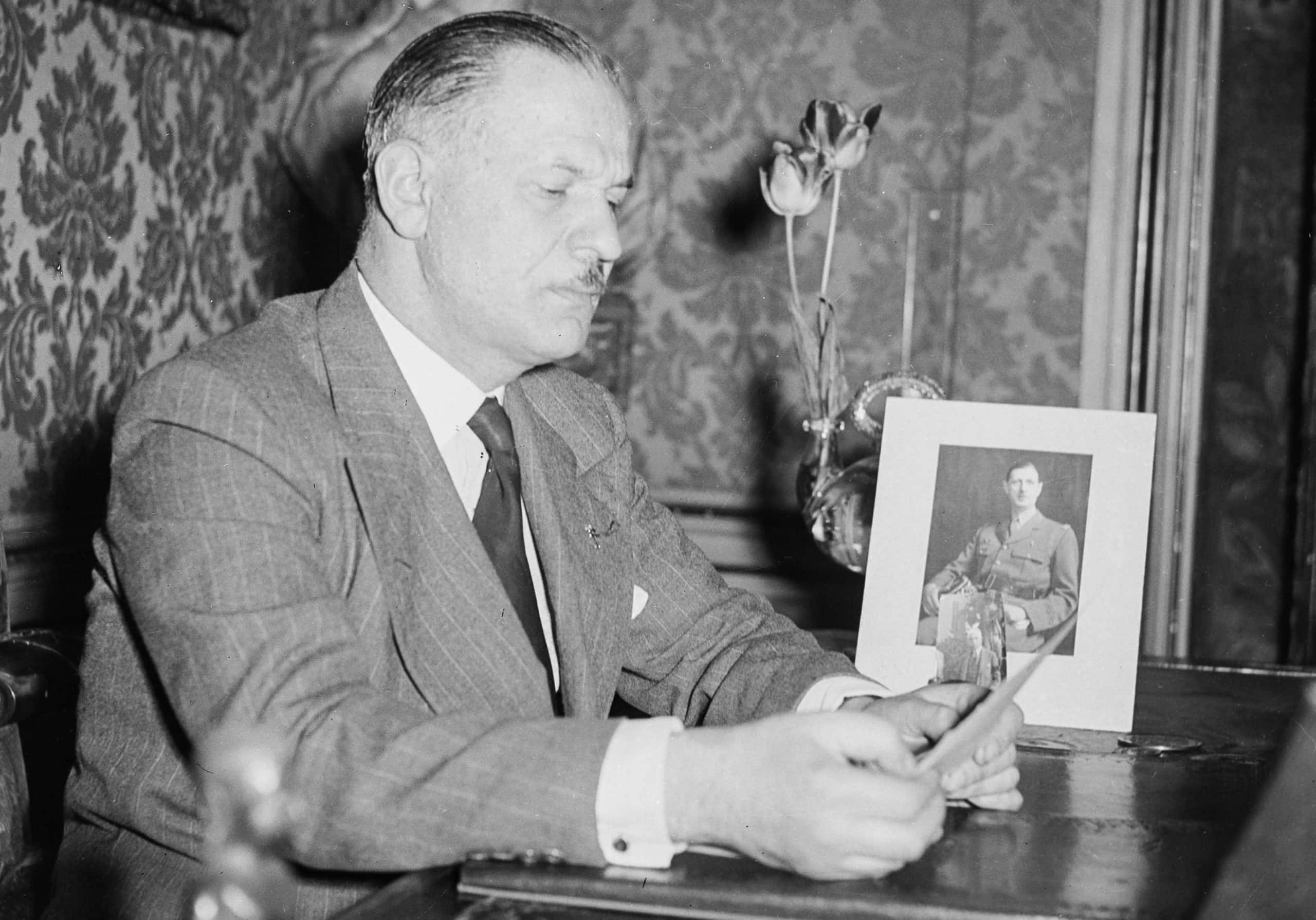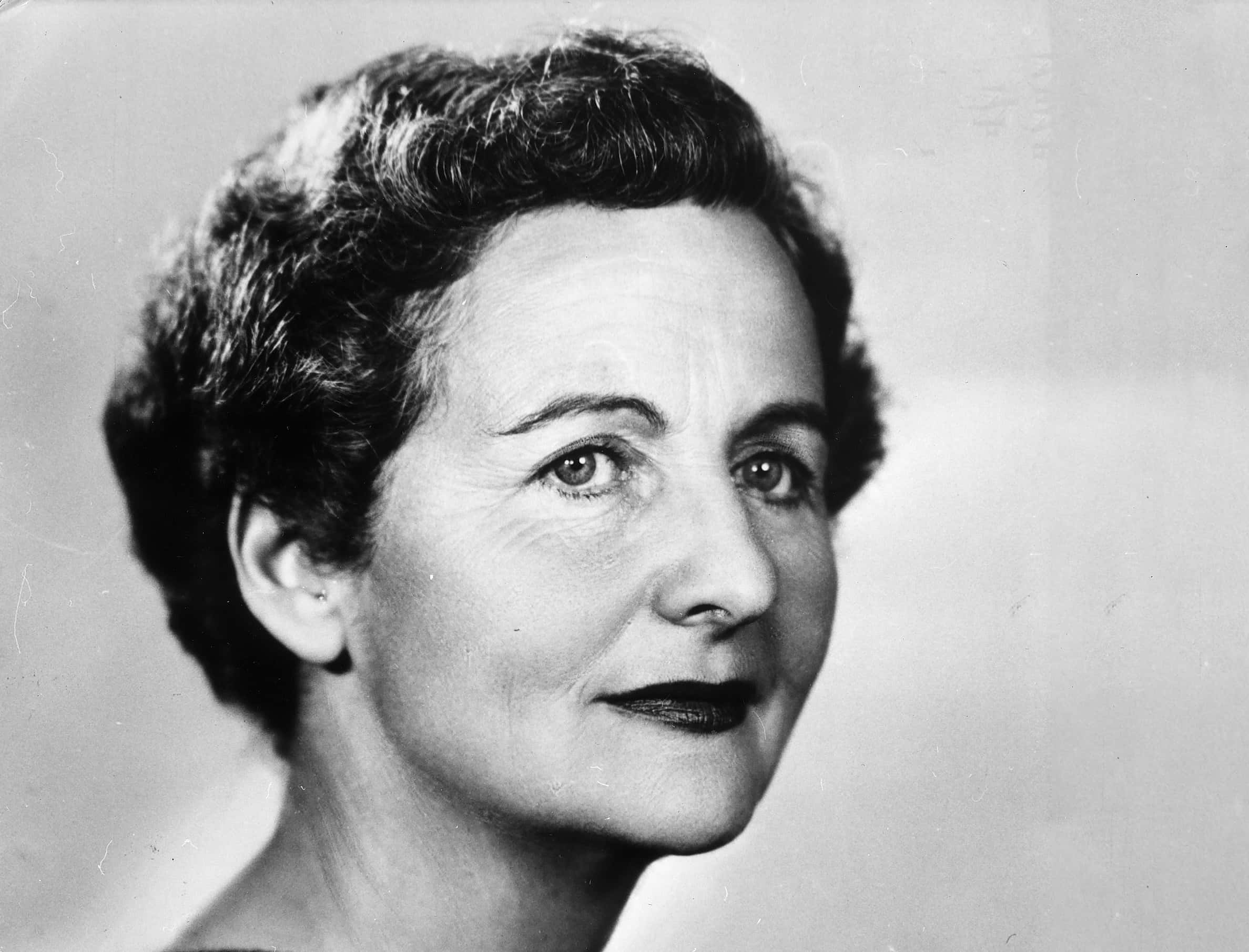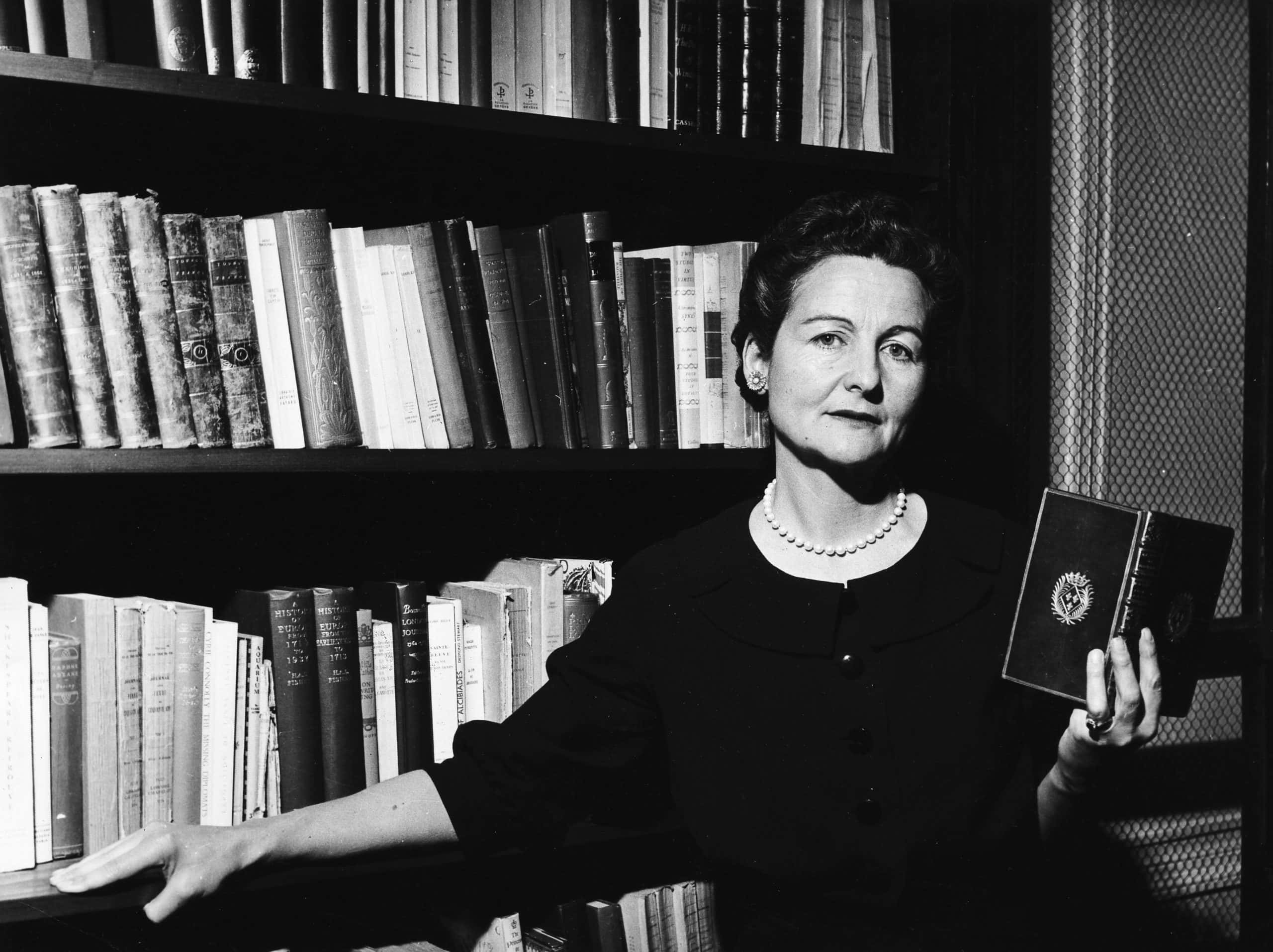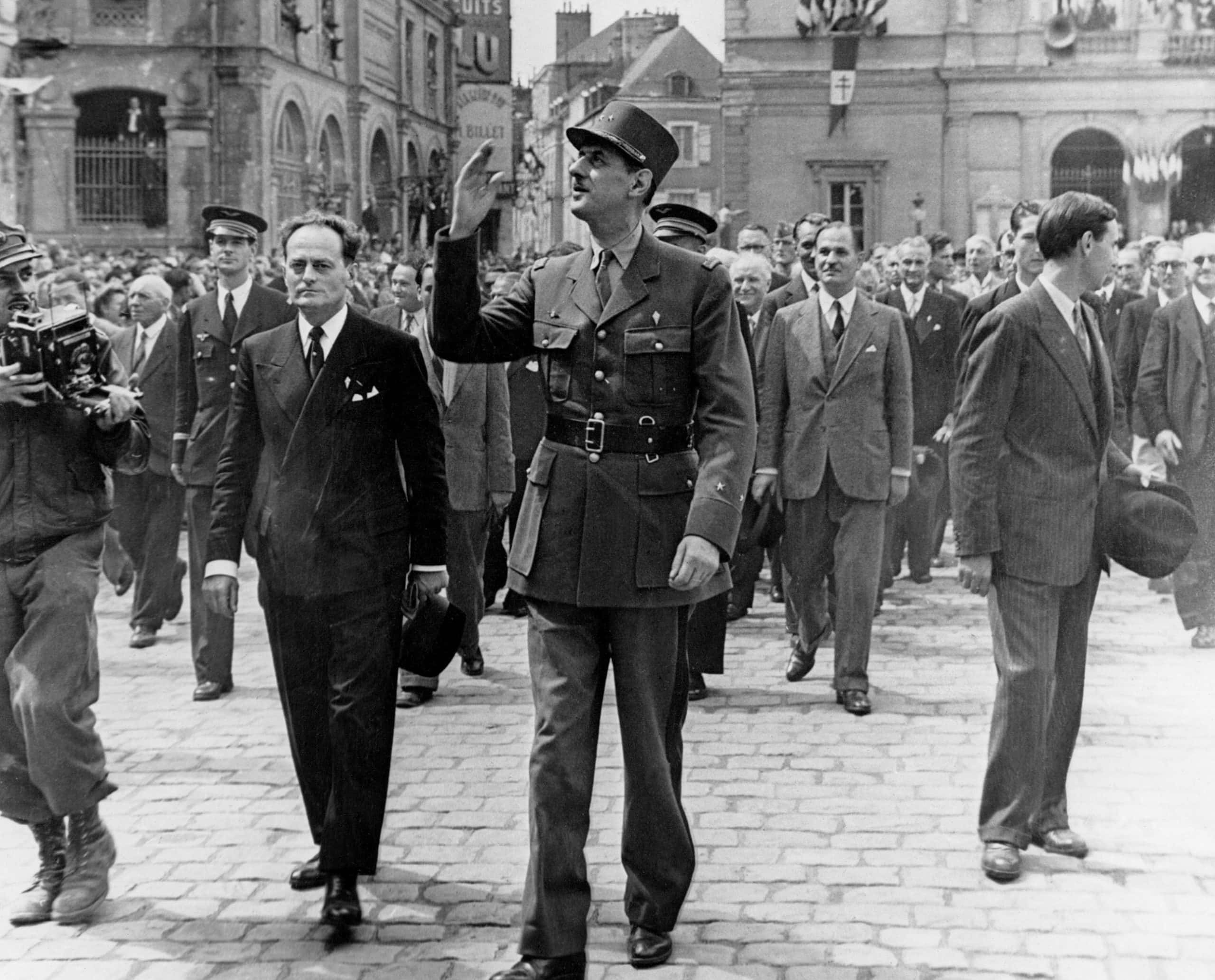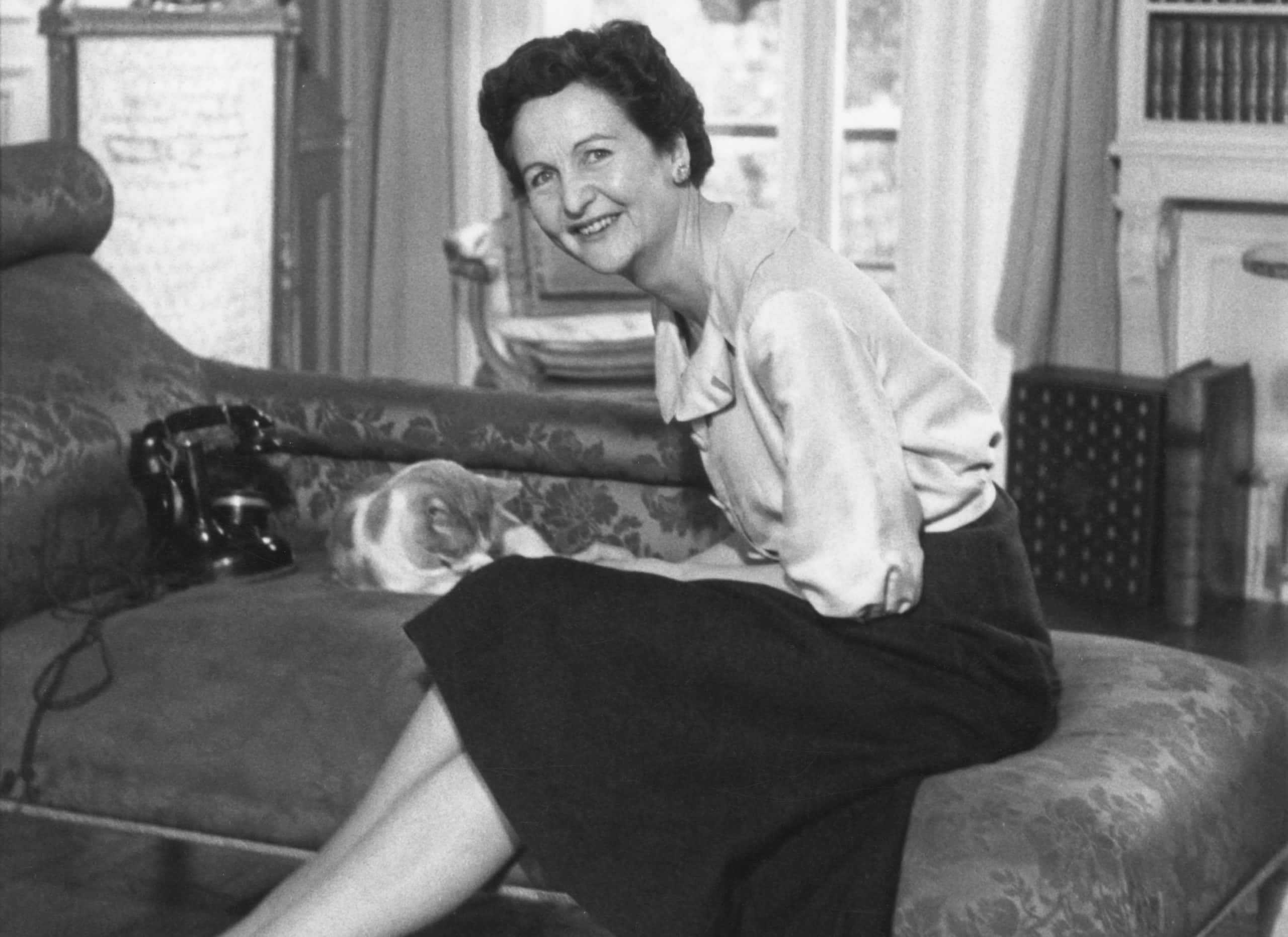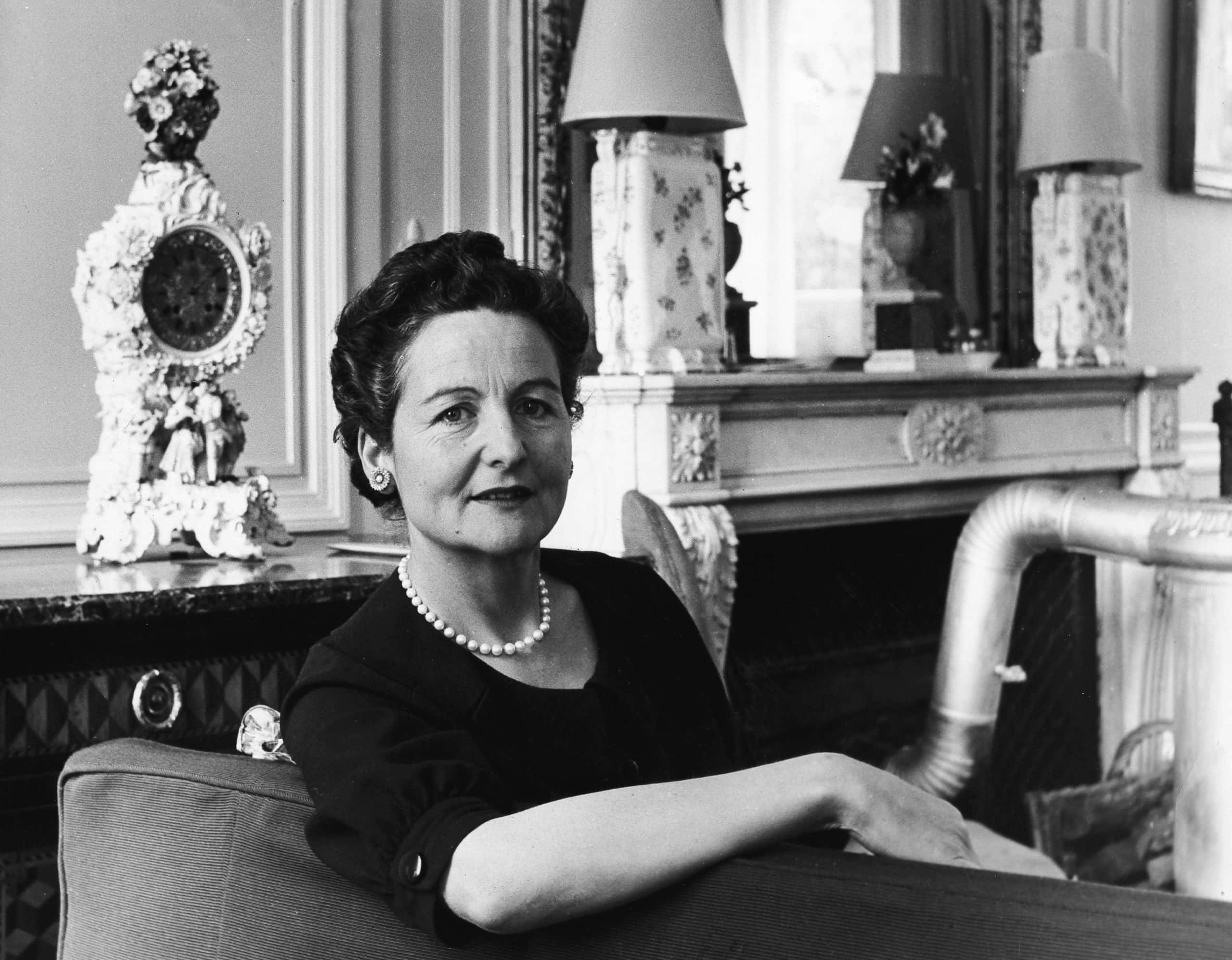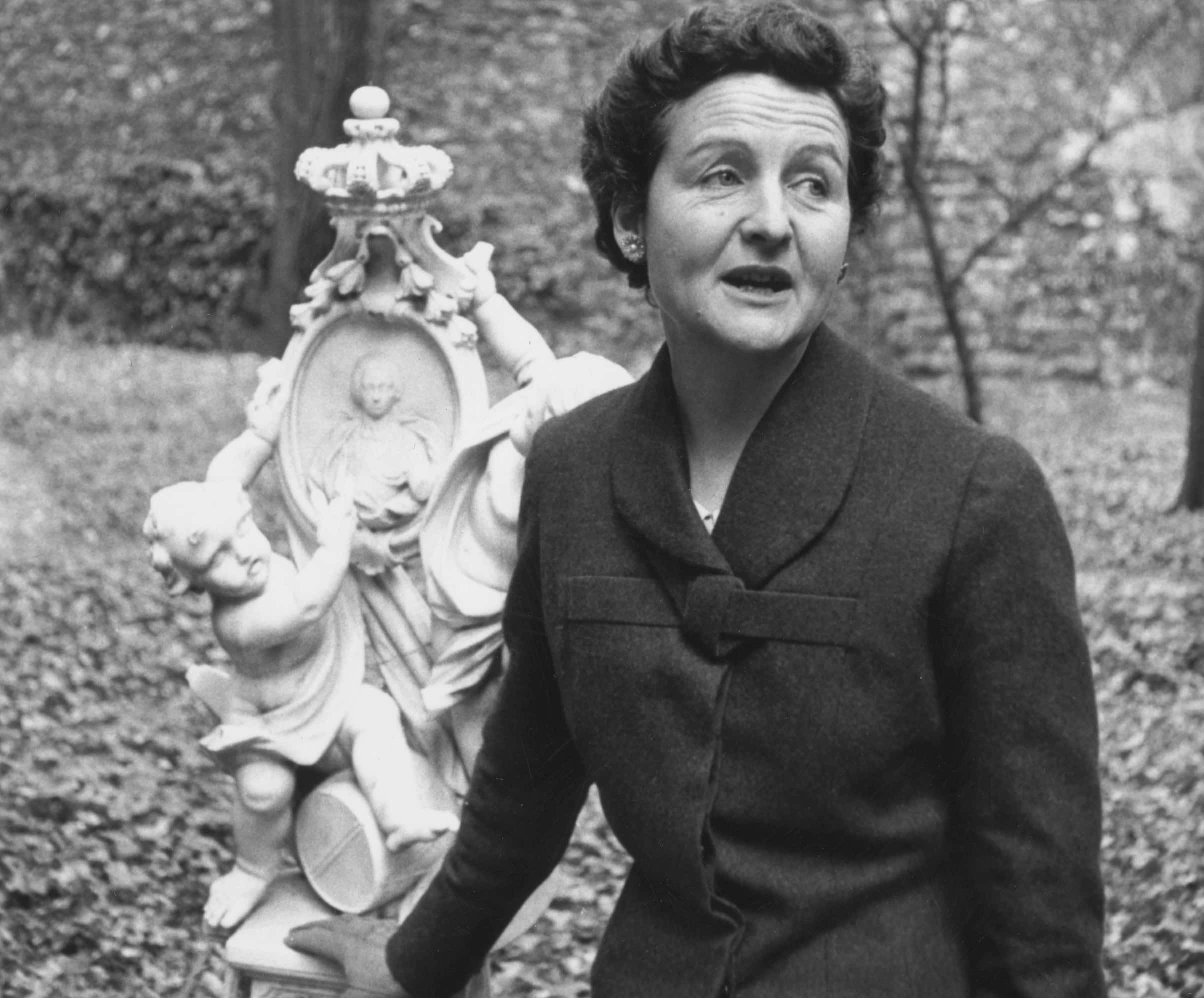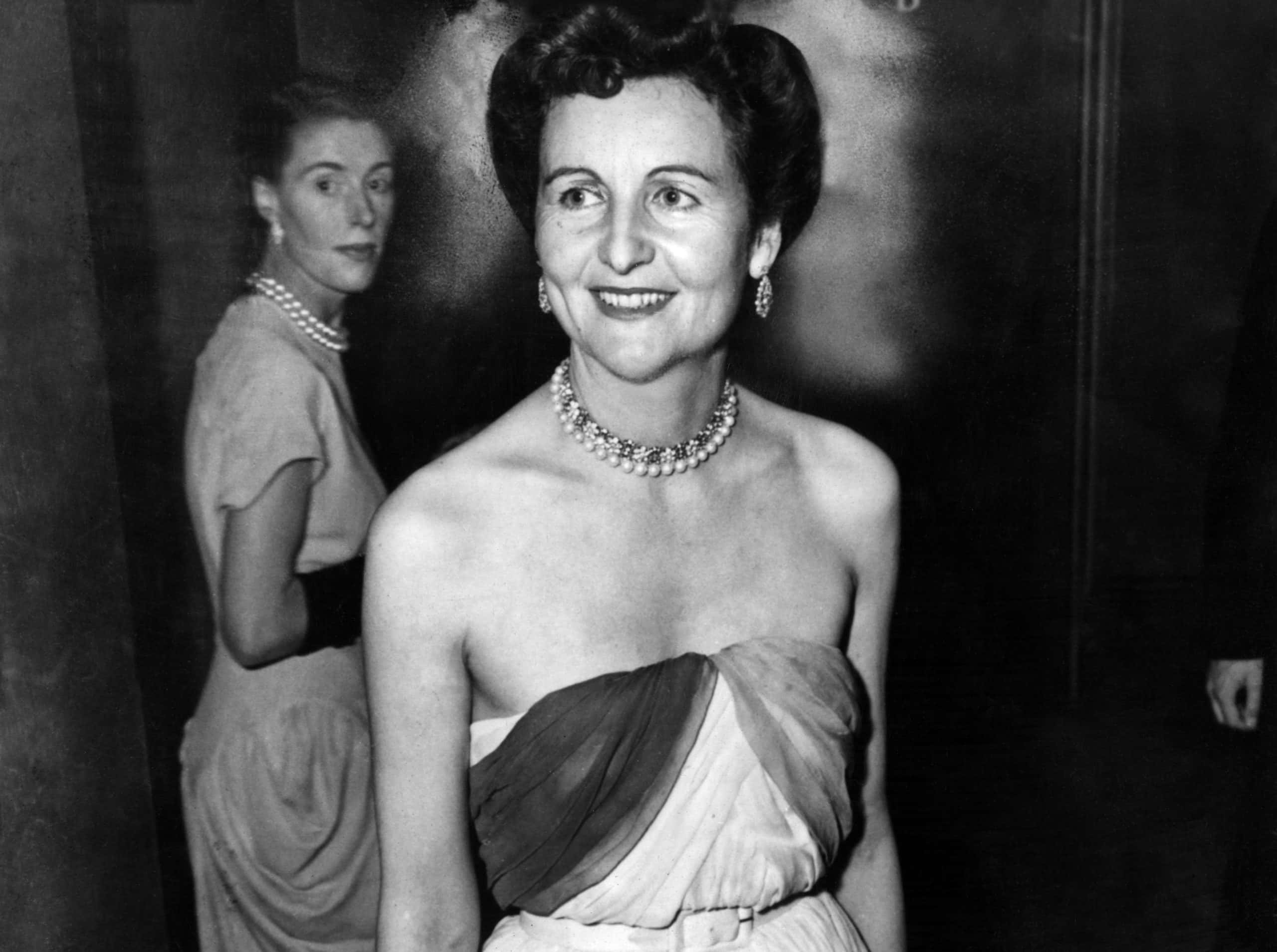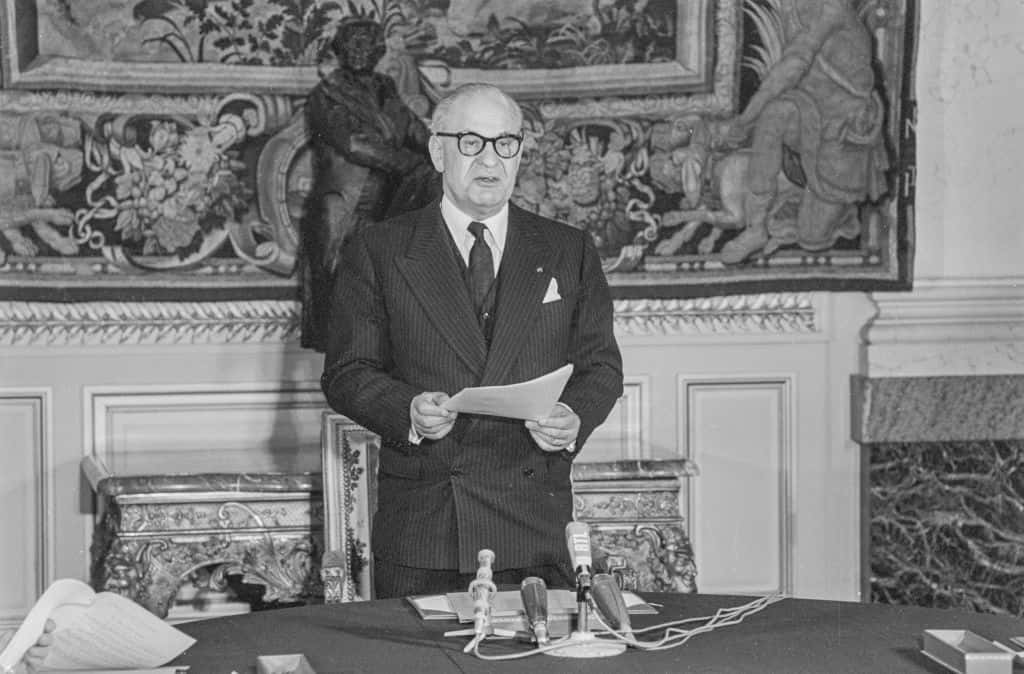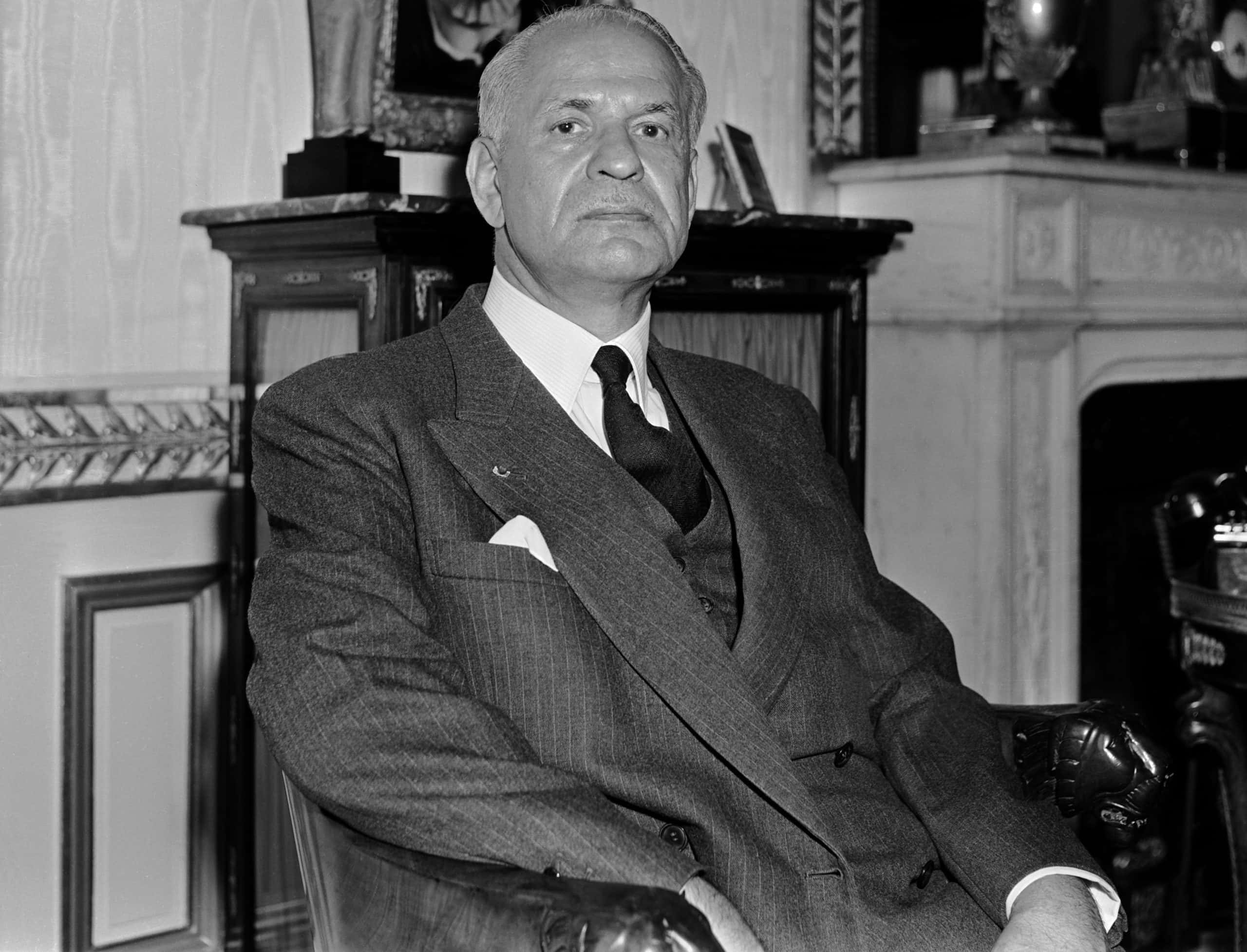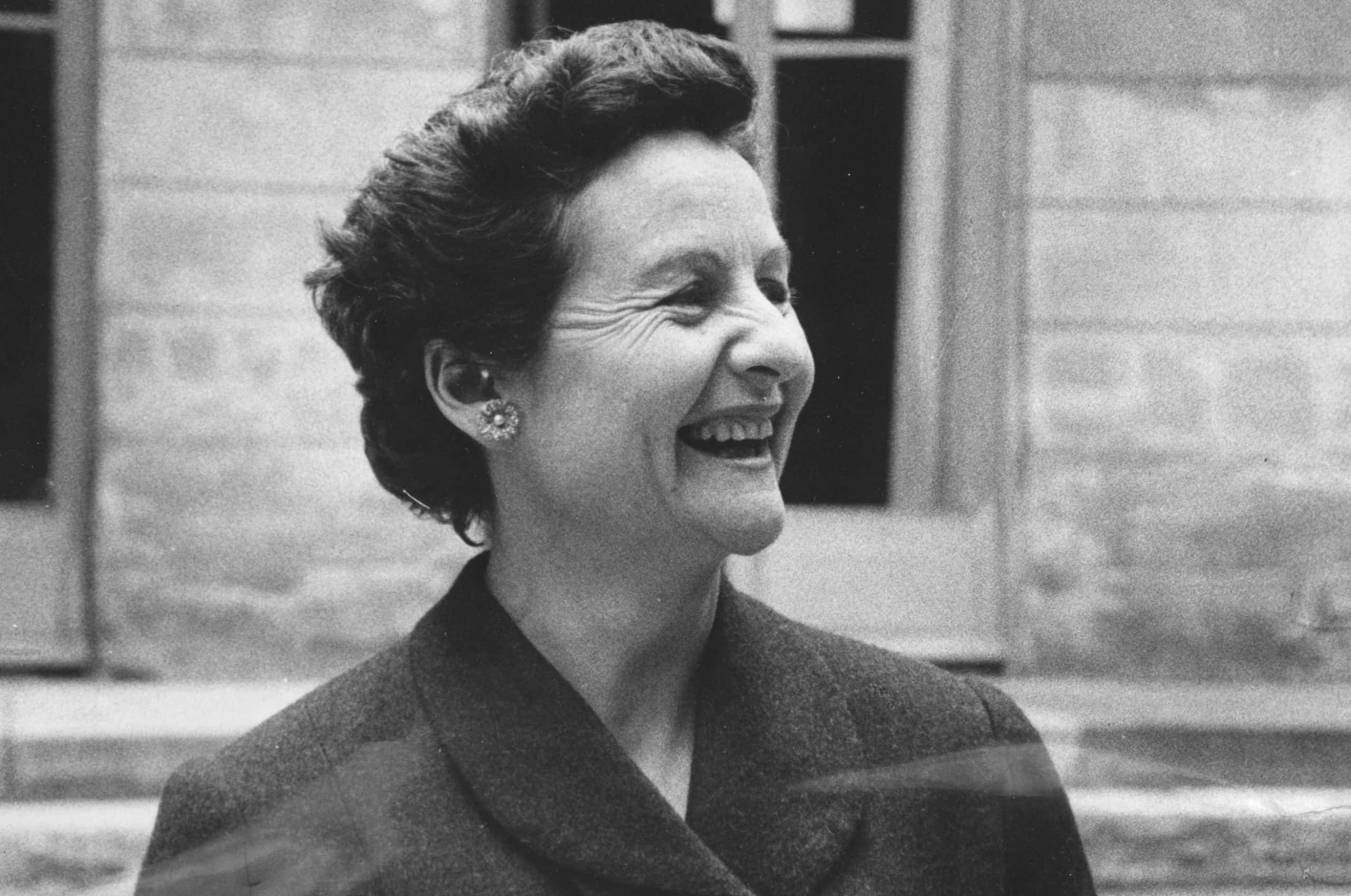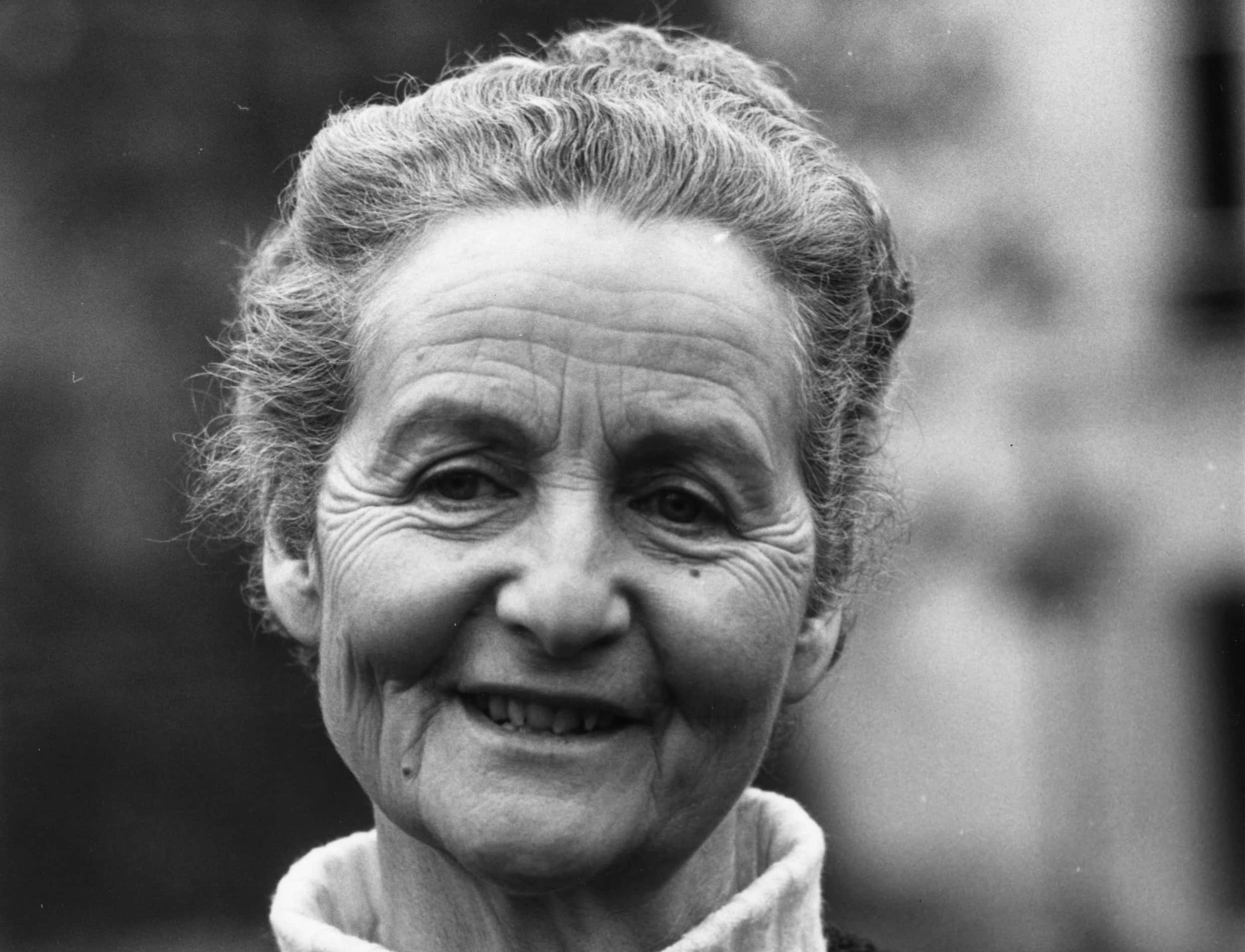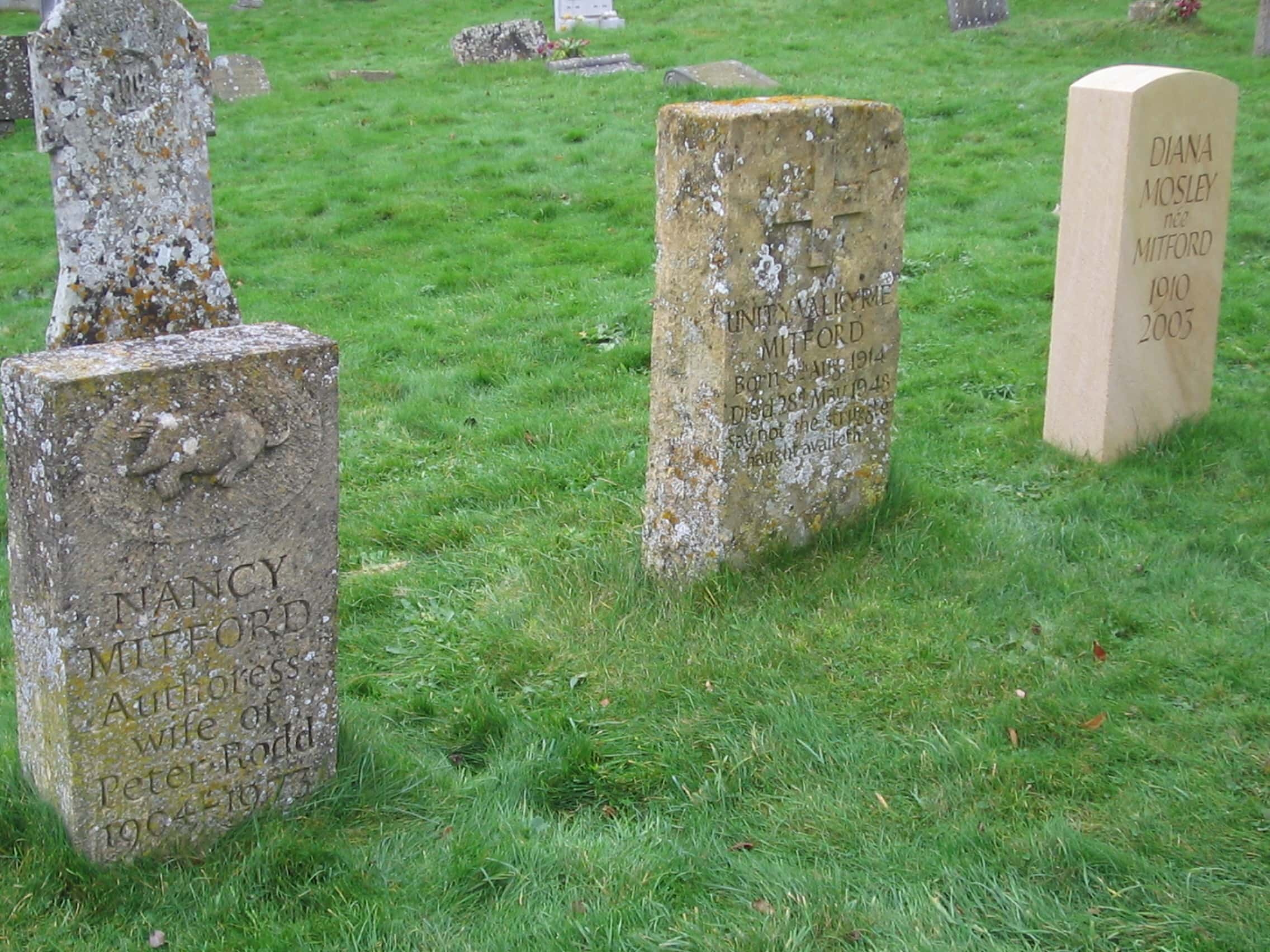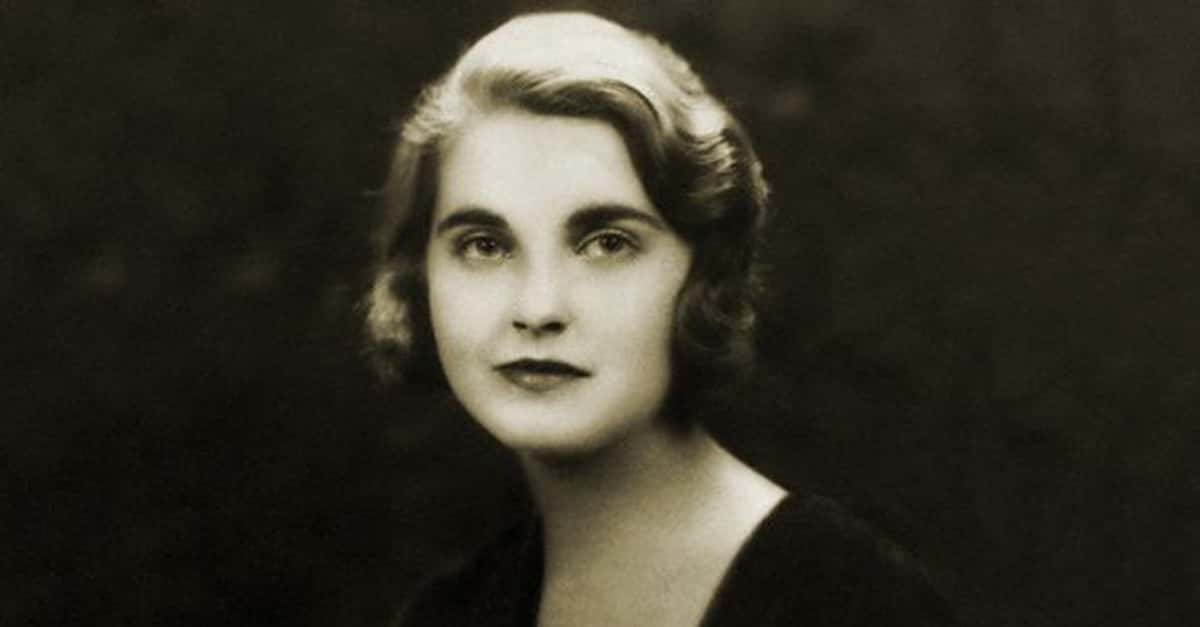The Bright Young Thing
Nancy Mitford was the darling of the “Bright Young Things” running around London in between WWI and WWII. Beautiful, moneyed, and intelligent, Nancy looked like she had it all. But behind her perfect manners and her polite writing, Mitford’s life and family were going to shambles. Soon enough, the whole world would know about her troubles.
1. Her Family Was Famous
In early 20th-century Britain, there were Bluebloods, and then there was Nancy Mitford’s family. Her parents, David Mitford and Sydney Bowles, were well-to-do in the extreme, with David in particular having descended from a line of Barons who had been influential since the Norman invasion of England—AKA, a really long time.
So when they had Nancy, their first child, on November 28, 1904, the world was her oyster. Or, so it looked from the outside.
2. She Was A Spoiled Brat
Having grown up sheltered themselves, Nancy’s parents barely knew what to do with her. Her mother made a mistake that would have lasting consequences. At the time, Sydney believed that children did best if you never got angry at them, much less corrected their mistakes. It resulted in a monster.
Nancy was an only child at the time, and she quickly became utterly spoiled and uncontrollable, prone to selfish tantrums and “red-faced rage”. And it was about to get even more tense.
3. She Was The Jealous Type
The Mitfords would go on to have an impressive seven children (six daughters and one son), and bratty little Nancy did not like that the attention was off her. When she was three and her first sister Pamela was born, the toddling Nancy was indignant at the change in her routine, and Pamela became her main target practice throughout the rest of her adolescence.
Still, the little girl was about to get one rude awakening.
4. Her Fortunes Changed
Within a few short years, Nancy had yet more siblings in her lone brother Tom plus sisters Diana, Unity, and Jessica. But the next years of her life brought a different kind of upheaval. With the outbreak of WWI, the Mitfords had a stunning change of fortune after their uncle died on the front and their grandfather died at home—turning Nancy’s own father into a Baron.
It was enough to mature any young girl quickly…but that’s not quite what happened to Nancy.
5. She Had A Dark Soul
In truth, Nancy’s inner life at this time was deeply unsettling. She still resented her next-youngest sister Pamela, but more than that she was often a cruel and uncaring older sister to her other siblings. She would tease them relentlessly and with deep barbs, so much so that the younger ones banded together to form a “Leag [sic] against Nancy”.
But there were other things going on that few people in her family knew about.
6. She Thought She Was Too Good For Her Family
By this time, it was clear to Nancy that she had intellect and drive that far exceeded the expectations of her aristocratic family, who wanted nothing more than for her to learn her manners and become a beautiful socialite.
Indeed, she had only gone to school for a handful of months; the rest of her education was at the hands of governesses. So Nancy finally took matters into her own hands.
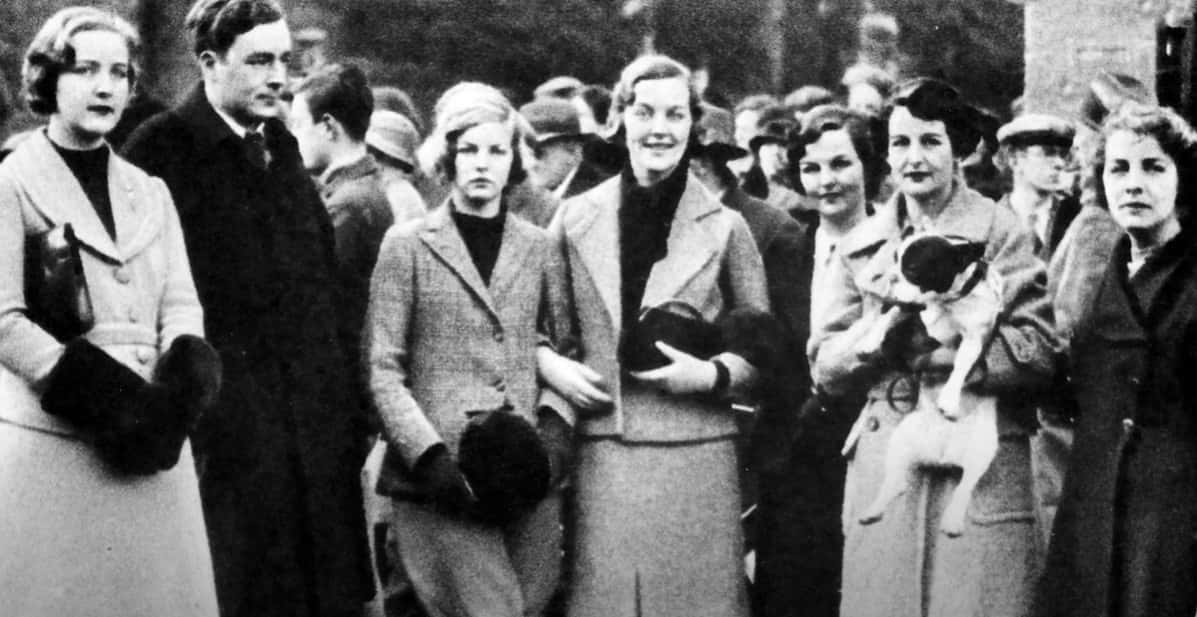 A Tale of Two Sisters, Jessica and Diana Mitford (2017), 3DD Productions
A Tale of Two Sisters, Jessica and Diana Mitford (2017), 3DD Productions
7. Her Parents Moulded Her Into A Proper Young Lady
In 1921, after a long campaign, Nancy finally convinced her parents to let her go to some kind of school. The one they chose was the boarding school at Hatherop Castle—but far from being a proper school, it was "more a chaste foretaste of debutante life,” as Nancy’s biographer Laura Thompson describes it.
Nancy enjoyed it, but she likely knew it wasn’t really living, either. Perhaps that’s why she finally broke out in a big way.
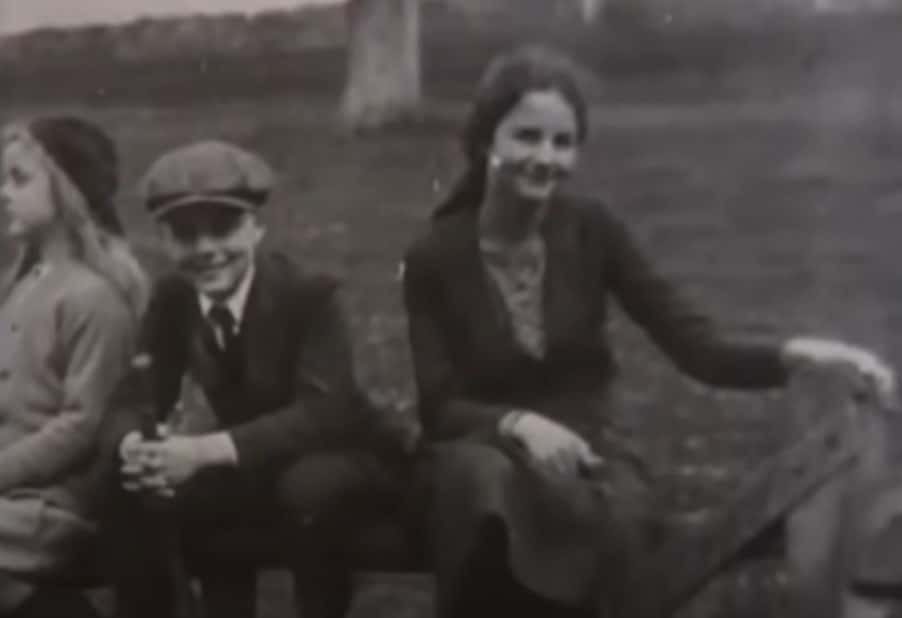 Nancy Mitford A Portrait by Her Sisters (1980), BBC
Nancy Mitford A Portrait by Her Sisters (1980), BBC
8. She Met The King Of England
In November 1922, Nancy turned 18 and had an official coming out ball to “introduce” her into society at large. Then, half a year later, she had a formal presentation to King George V and his court—yes, that’s how Blue-blooded her family was, she got to meet the King of England as a matter of course.
But it didn’t take long for all this pomp and circumstance to turn to infamy.

History's most fascinating stories and darkest secrets, delivered to your inbox daily.
9. She Took Up With A Fast Crowd
Nancy knew her worth, and she knew she didn’t want to hang around with the fusty, conservative men and women her father and mother approved of. So the minute she could, she began socializing with the infamous “Bright Young Things” of London, a group of young aristocrats who certainly didn’t care about being good little boys and girls.
Nancy was about to walk across the threshold into adulthood. It just wasn’t a pretty crossing.
10. She Became A Party Girl
With the Bright Young Things, Nancy was soon caught up in a world of all-night costume parties, midnight scavenger hunts romping through the public transit systems, and lots of drinking. As Nancy said herself of this time in her life, “we hardly saw the light of day, except at dawn”. Nancy was meeting scads of suitors during this reveling…but her eye fell on very much the wrong ones.
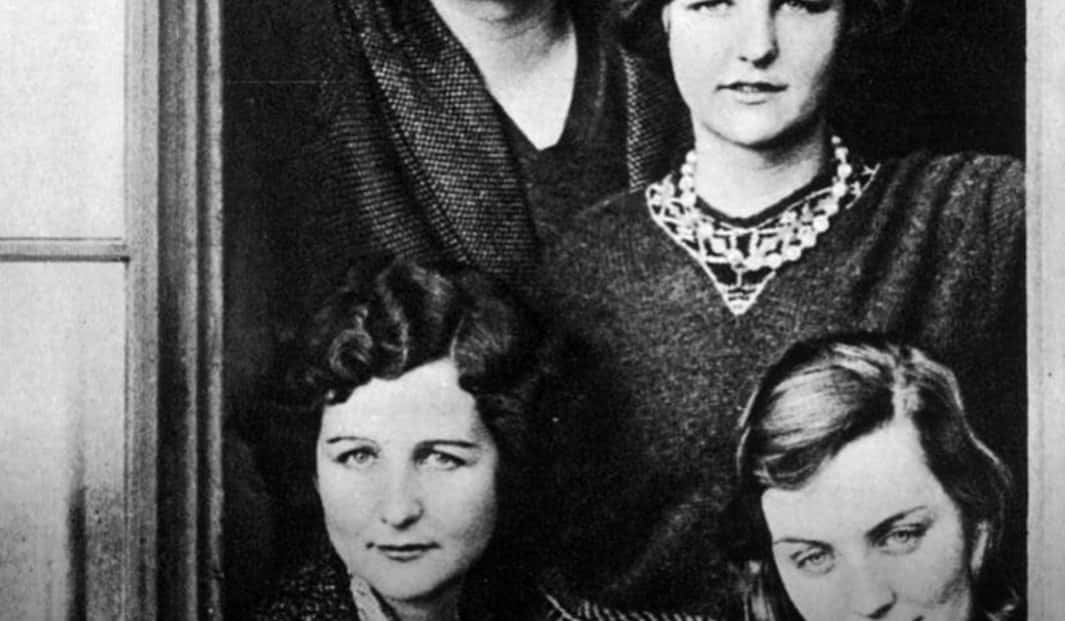 A Tale of Two Sisters, Jessica and Diana Mitford (2017), 3DD Productions
A Tale of Two Sisters, Jessica and Diana Mitford (2017), 3DD Productions
11. Her Father Was Overprotective
As Nancy grew into a young woman, it became clear she had a romantic type: Snobbish aesthetes who were more frivolous than serious. Besides the fact that these men weren’t exactly marriage material, there was a bigger problem. Her father, already over-protective of his eldest daughter, absolutely hated these love interests and made no secret of trying to drive them off.
Which made the next turn of events extremely infuriating for him.
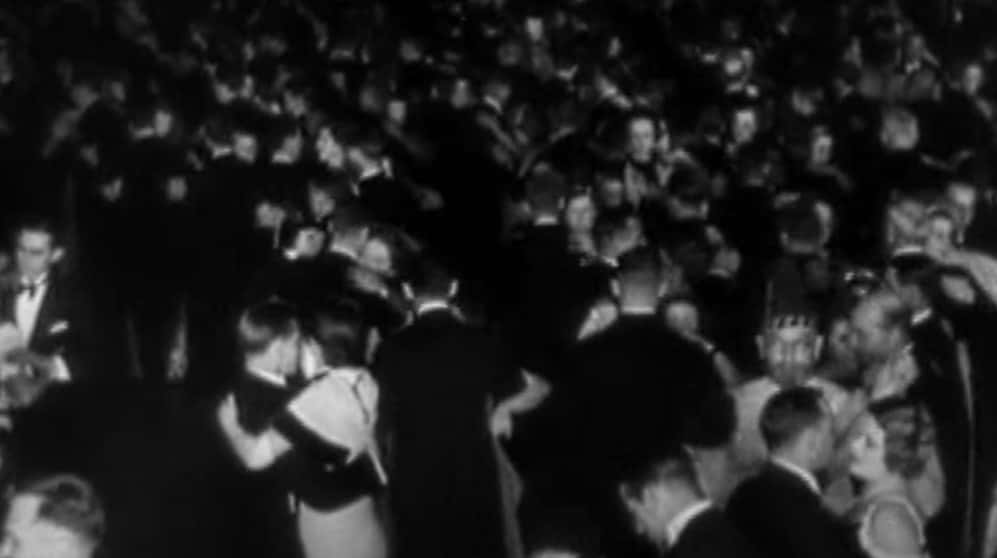 A Tale of Two Sisters, Jessica and Diana Mitford (2017), 3DD Productions
A Tale of Two Sisters, Jessica and Diana Mitford (2017), 3DD Productions
12. She Had A Type
In 1928, Nancy met Hamish St Clair Erskine, a man who ticked all her boxes. As one friend described him, Hamish “was slight of build, well dressed…always snobbish however, and terribly conscious of his nobility”. Nancy, needless to say, fell head over heels for the good-looking dandy, while her father had steam coming out his ears about it.
Except, when it came to Hamish, there were a whole host of other issues besides his taste in dress. Big issues.
13. She Had Bad Taste In Men
Hamish St Clair Erskine was a tricky proposition, even by Nancy’s not-great standards. Not only was he four years younger than her—he had gone to Eton with her younger brother Tom—but he was immature for his age to boot and, by most accounts, not a stand-up guy.
One commenter called him “the most shimmering and narcissistic of men,” and Nancy’s own friends urged her to dump Hamish and then “dress better and catch a better man”. Except that was just the beginning.
14. Her Love Was Unrequited
Hamish might have been self-absorbed, but there were worse incompatibilities. Chief among them, he was, very certainly, gay—truly, one of his friends once called him “gay as gay”. It’s possible Nancy never even realized where his proclivities lay, and she almost certainly never came to accept the truth. But Nancy’s lover was hiding an even bigger secret.
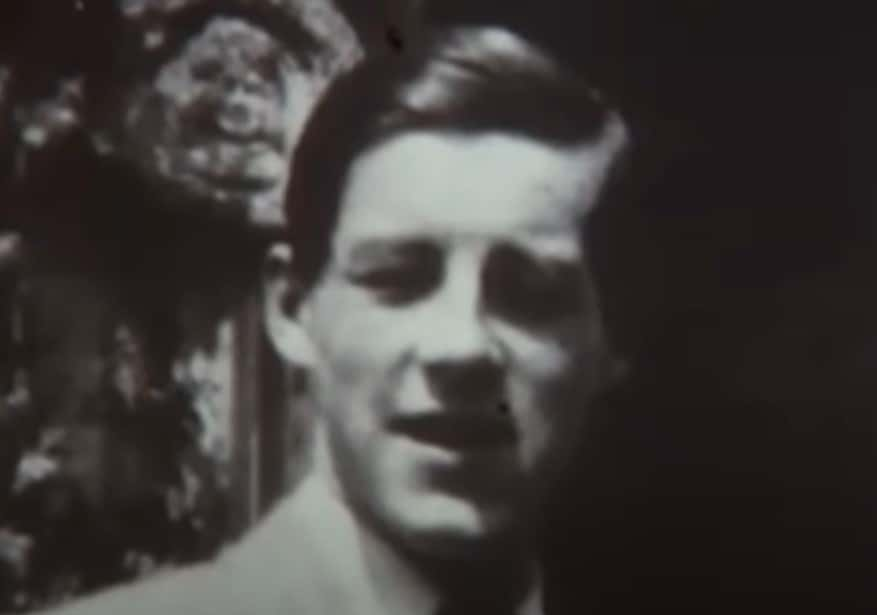 Nancy Mitford A Portrait by Her Sisters (1980), BBC
Nancy Mitford A Portrait by Her Sisters (1980), BBC
15. Her Brother Slept With Her Boyfriend
Incredibly enough, Nancy wasn’t the first Mitford Hamish had dallied with. While he and Nancy’s brother Tom were at school in Eton together, they had a romantic relationship…a fact I somehow doubt Nancy ever found out, either.
Still, none of this stopped Hamish from becoming formally engaged to Nancy. And no, it wasn’t going to end well. The fuel was poured; the fire was about to be lit.
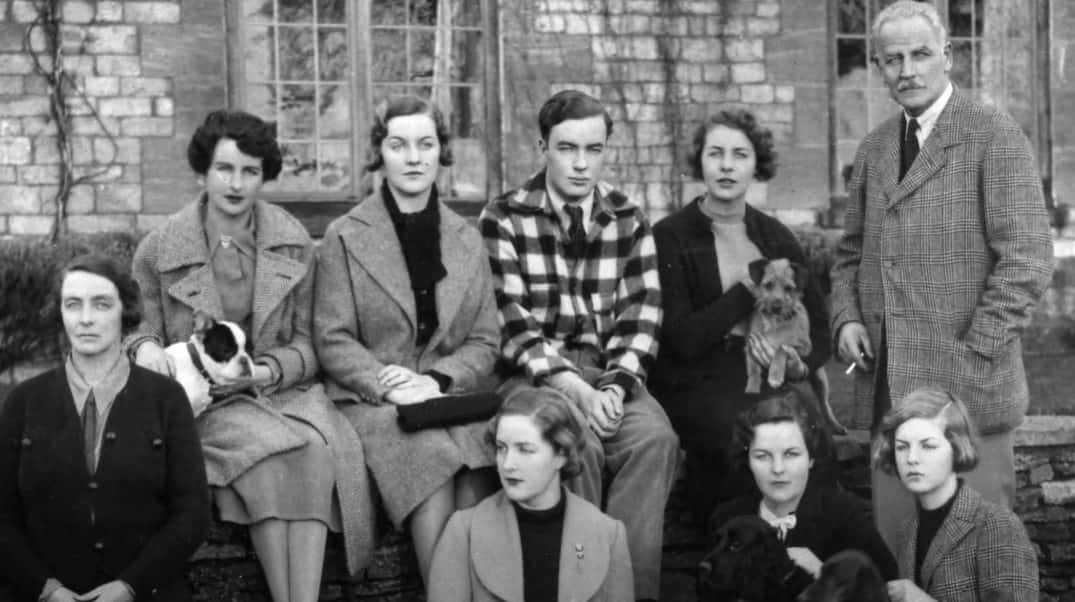 A Tale of Two Sisters, Jessica and Diana Mitford (2017), 3DD Productions
A Tale of Two Sisters, Jessica and Diana Mitford (2017), 3DD Productions
16. She Was Stuck In A Bad Relationship
The next years of Nancy’s life were heartbreaking and dismal. Hamish didn’t, couldn’t, love her the way that she loved him, and while she understood this on some level, she also clung to him like a life raft. Even when other men gave her offers of marriage, she turned them away, claiming she would “never marry anyone except Hamish”.
It was in this state that Nancy brought the first—but far from the last—scandal to her family.
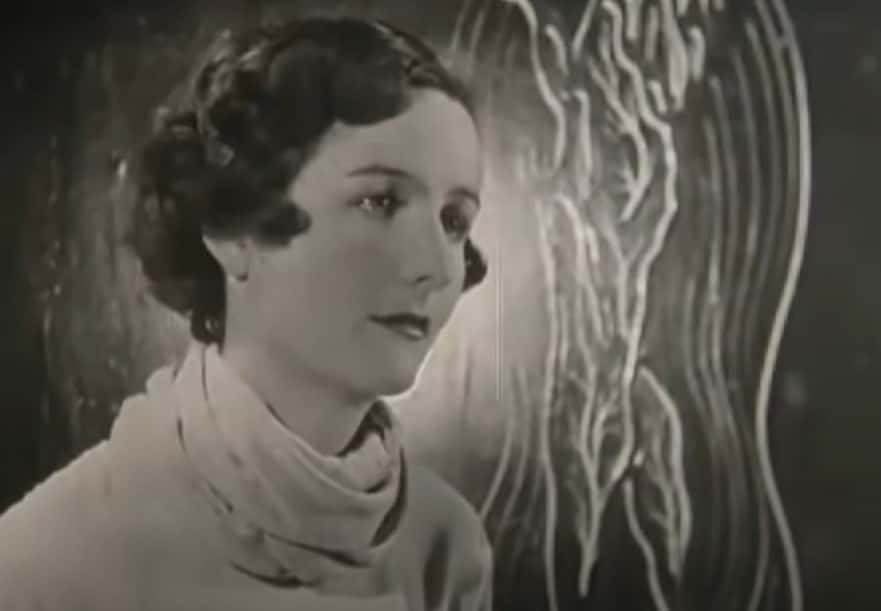 Nancy Mitford A Portrait by Her Sisters (1980), BBC
Nancy Mitford A Portrait by Her Sisters (1980), BBC
17. She Shocked Her Parents
Nancy had dabbled in writing here and there throughout her life so far, but in 1931 she published her first novel, Highland Fling, which contained thinly veiled characterizations of her friends and their raucous lifestyles; Hamish appears as “Bobby Bobbin”. The publication shocked her polite parents, who couldn’t believe Nancy had aired aristocrats’ dirty laundry, especially when she did it under her own name.
But if the Mitfords thought that was as bad as it was going to get, they were in for a very disturbing surprise.
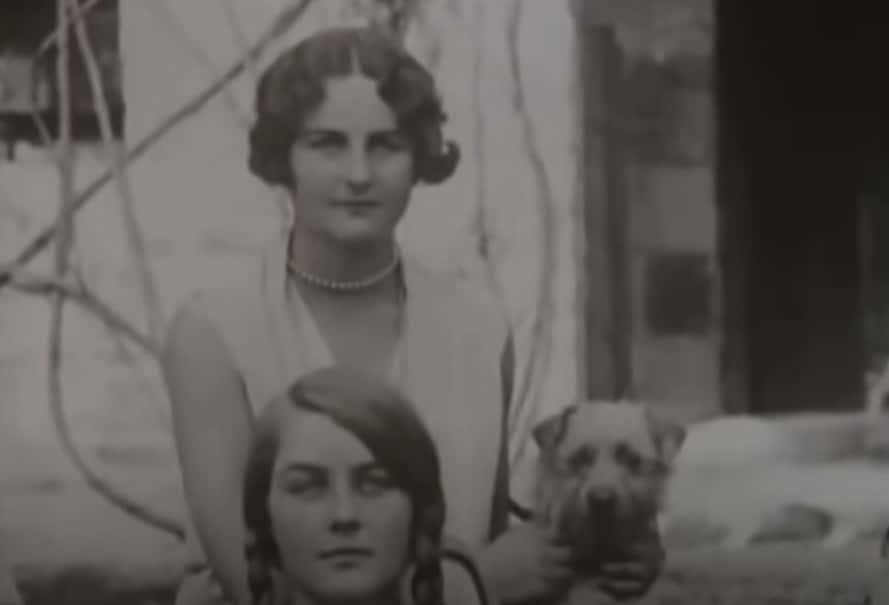 Nancy Mitford A Portrait by Her Sisters (1980), BBC
Nancy Mitford A Portrait by Her Sisters (1980), BBC
18. Her Sibling Brought Infamy To The Family
In 1932, just a year after Highland Fling came out, Nancy’s sister outdid her in infamy by a mile. Diana, one of the middle sisters, had married Bryan Walter Guinness in 1929 and quickly had two young sons with him.
They were one of high society’s power couples—until, that is, Diana abandoned her family to become the mistress of the (also married) Sir Oswald Mosley, the leader of the nefarious British Union of Fascists. And this is where Nancy made some questionable decisions.
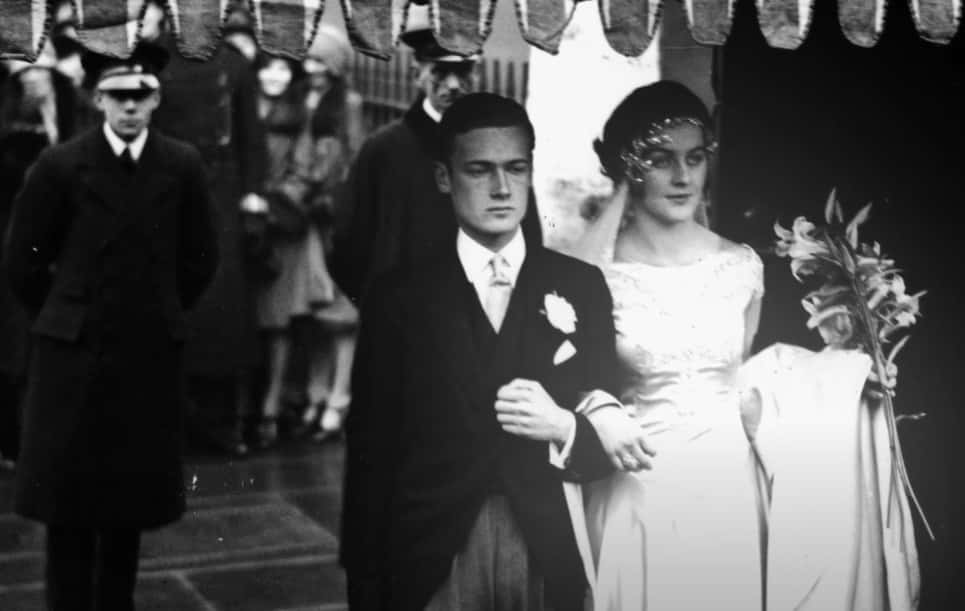 A Tale of Two Sisters, Jessica and Diana Mitford (2017), 3DD Productions
A Tale of Two Sisters, Jessica and Diana Mitford (2017), 3DD Productions
19. She Was A Peacekeeper
Most of the Mitfords censured Diana’s immorality in running away with a married man, though they were less concerned with her choice of lover or his disgusting politics. Nancy took a different tack. Cementing a moderate, peacekeeper role she would exhibit for the rest of her life, Nancy acted as a go-between for Diana, still visiting with her and giving her family gossip. This, however, was dangerous territory.
For a short time, Nancy became interested in Mosley’s politics as well, though she did quickly turn against them (phew). Besides, she had her own, new disgrace to deal with.
20. Her Fiancé Dumped Her
In the middle of her family’s disgrace, Nancy’s fiancé Hamish St Clair Erskine decided to twist the knife in a little more. In a completely heartless move, he coolly informed her that they were done for good, because he was now going to marry a banker’s daughter.
Nancy, devastated, wrote to him in a final letter: "I thought in your soul you loved me & that in the end we should have children & look back on life together when we are old". To say she went on the rebound after this would be an understatement. The next months were a bona fide disaster.
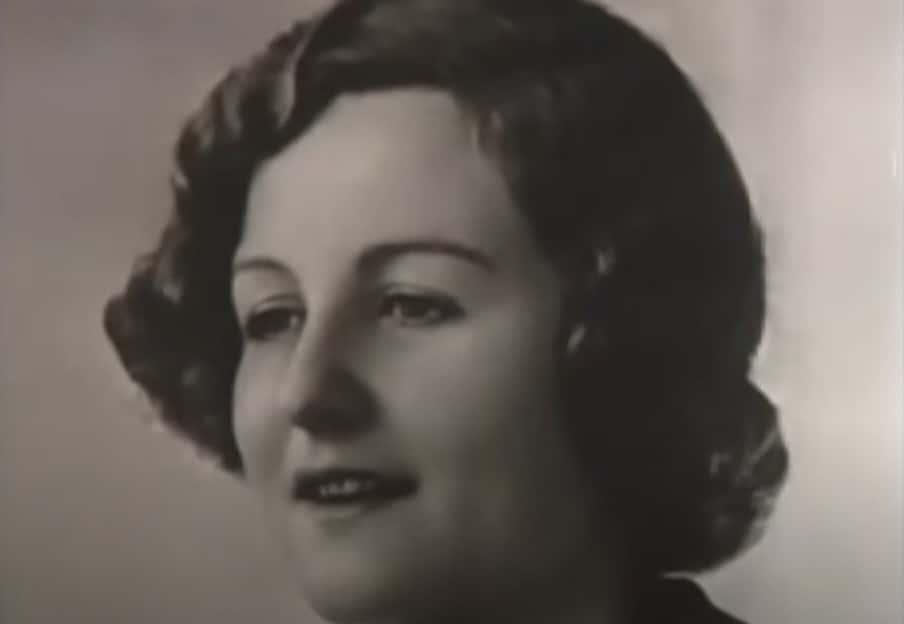 Nancy Mitford A Portrait by Her Sisters (1980), BBC
Nancy Mitford A Portrait by Her Sisters (1980), BBC
21. She Had A Disastrous Rebound
Still smarting from Hamish’s rejection, Nancy made a quick decision that turned into a fatal mistake. She announced to her family that she was engaged to a man named Peter Rodd, the son of a politician. While some called Rodd “a young man of boundless promise," others found him shifty and lazy—can you guess who was right about him in the end?
Once more, Nancy’s friends weren’t very happy with her choice of partner. They were about to get a whole lot unhappier.
22. She Went Through With A Miserable Marriage
Nancy never did have good taste in men, so while she went through with the engagement and wed Peter Rodd in December 1933, the wheels started falling off soon after. Nancy’s bliss at finally being a married woman quickly gave way to the sneaking suspicion that her husband was, in fact, a dud.
Then, as they slowly grew apart, the messy Mitford family dynamics rose again with a vengeance.
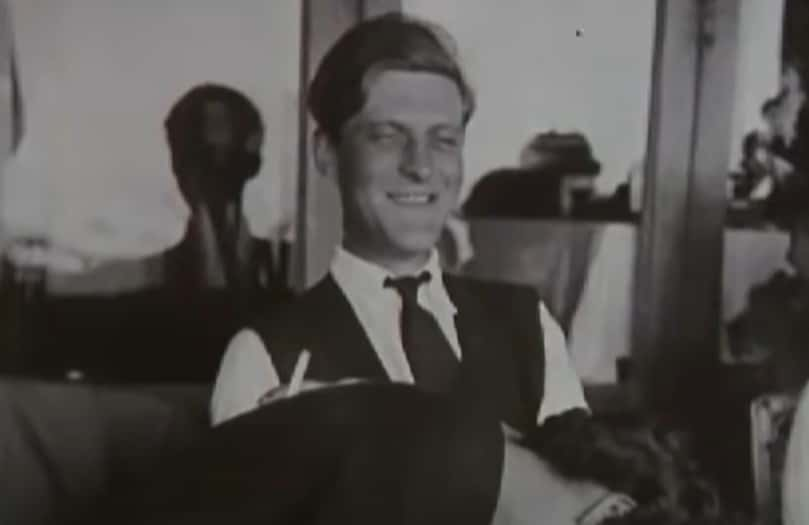 Nancy Mitford A Portrait by Her Sisters (1980), BBC
Nancy Mitford A Portrait by Her Sisters (1980), BBC
23. She Turned On Her Family
Although Nancy’s sister Diana brought shame on the family by marrying a bigoted, vicious idiot, the other middle sister, Unity, really took it up another level. As the 1930s dawned, Unity became obsessed with the Third Reich and everything it stood for. Nancy’s conservative parents weren’t doing a whole lot to stop their two girls, so Nancy, as usual, took it into her own hands.
In 1934 she published another novel, Wigs on the Green, which lambasted Mosley and his ideology—and started another raging family feud. Diana resented her for it for years, but Unity was so upset she never reconciled with her again. Not that this was anywhere near the end of the Mitford family drama.
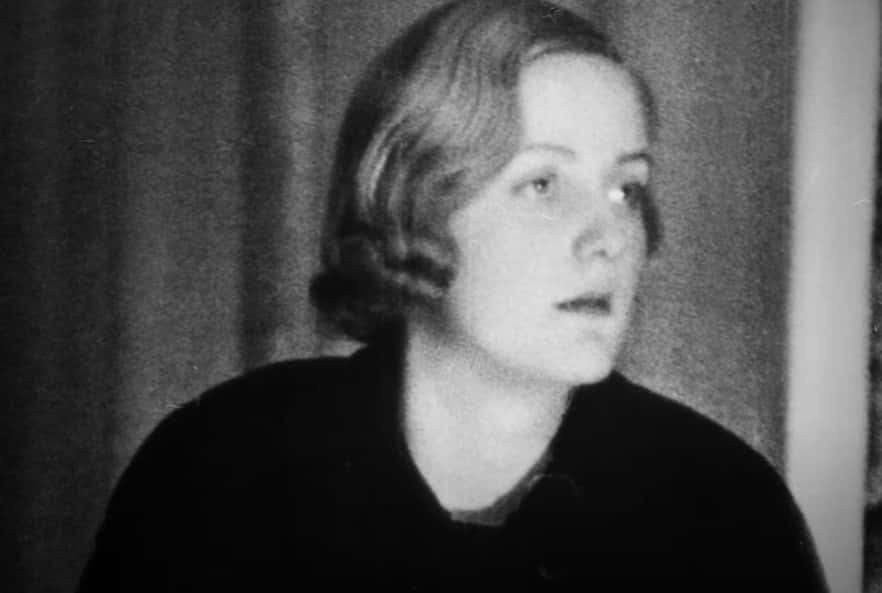 A Tale of Two Sisters, Jessica and Diana Mitford (2017), 3DD Productions
A Tale of Two Sisters, Jessica and Diana Mitford (2017), 3DD Productions
24. She Had A Rebel Sister
In 1937, the second-youngest Mitford daughter, Jessica, caused yet another scandal—but this time it was in the complete opposite political direction to her older sisters. At the tender age of 19, Jessica eloped with her own cousin, Esmond Romilly, who was a card-carrying Communist. Truly, I would give anything to be at the Mitford family dinner table.
Once more, though, Nancy didn’t have much energy to devote to her family drama, because her personal life was falling apart again.
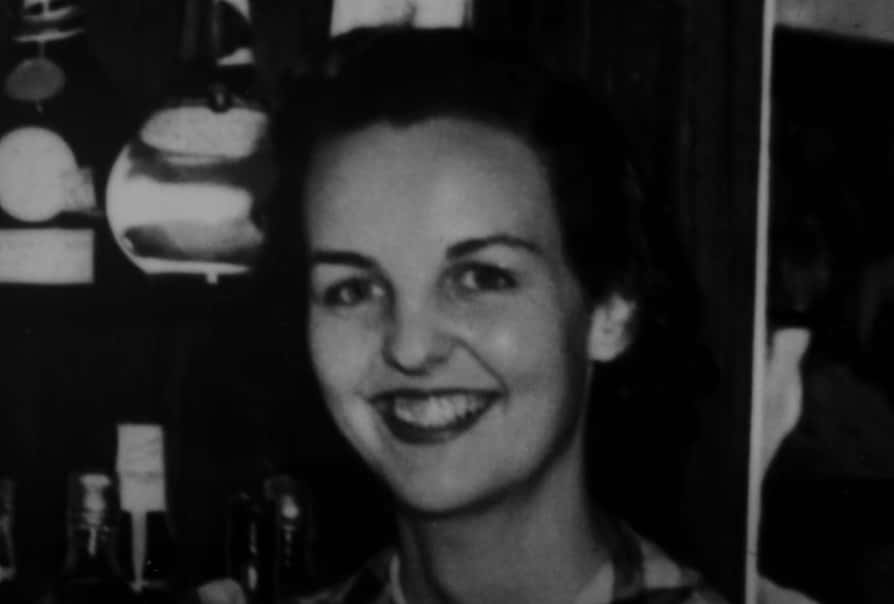 A Tale of Two Sisters, Jessica and Diana Mitford (2017), 3DD Productions
A Tale of Two Sisters, Jessica and Diana Mitford (2017), 3DD Productions
25. Her Husband Was Jealous
By 1938, Nancy’s marriage to Peter Rodd had gone from quietly depressing to fully disturbing. Rodd had been having an open-secret affair with the wife of his friend for nearly a year, all while resenting every waking minute that Nancy wasn’t with him and throwing him adoring glances.
Nancy, inexplicably, still stayed. And then the inevitable happened.
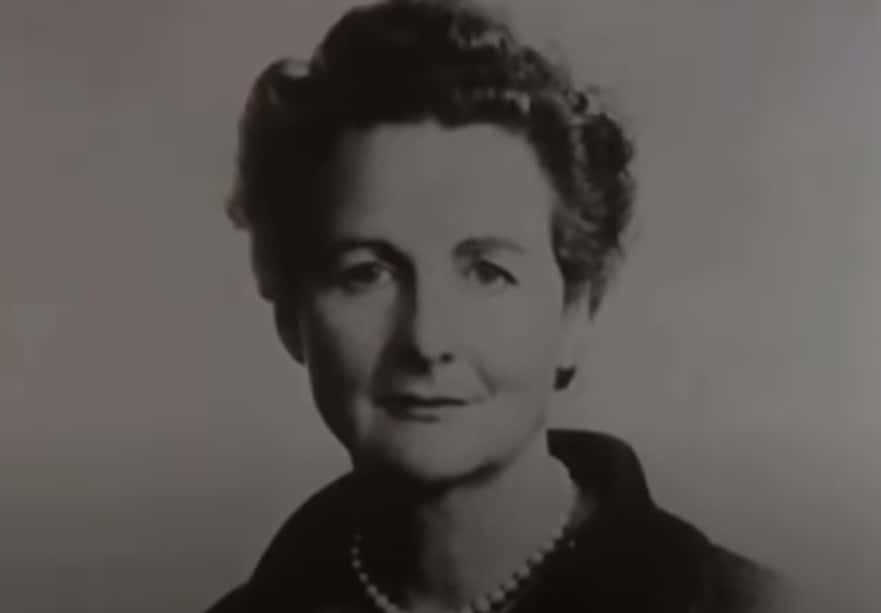 Nancy Mitford A Portrait by Her Sisters (1980), BBC
Nancy Mitford A Portrait by Her Sisters (1980), BBC
26. She Was Scared Of Her Baby
Just as the weather turned warm in 1938, Nancy made a chilling discovery. Well, chilling for anyone who cared about her crumbling marriage: She was pregnant with Peter Rodd’s child, and it looked like they were going to be miserably bound together for life.
Nancy even hoped for a girl, writing that “2 Peter Rodds in 1 house is unthinkable”. But that September, after all her worrying over the child, Nancy suffered a miscarriage. And wouldn’t you know it? With her private life at rock bottom, her wider world was about to go to hell in a handbasket.
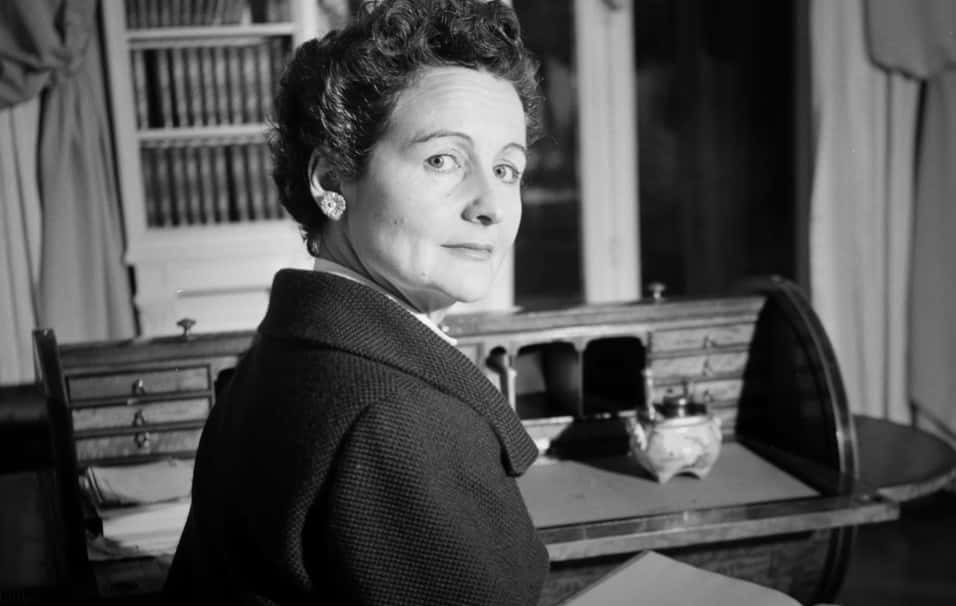 Nancy Mitford A Portrait by Her Sisters (1980), BBC
Nancy Mitford A Portrait by Her Sisters (1980), BBC
27. Her Family Fell Apart
In September of 1939, the quiet country life the Mitfords once knew fell apart once and for all. With the onset of WWII, the various factions of the family self-destructed. While Nancy and her husband supported the Allies, it wasn’t as easy for her siblings to be on the right side of history.
Her sister Diana—who Nancy called a “ruthless and shrewd egotist,”—had just gone from mistress to wife of Oswald Mosley, and her sister Unity was now close personal friends with the Fuhrer himself. It was a pressure cooker, so is it any wonder it exploded?
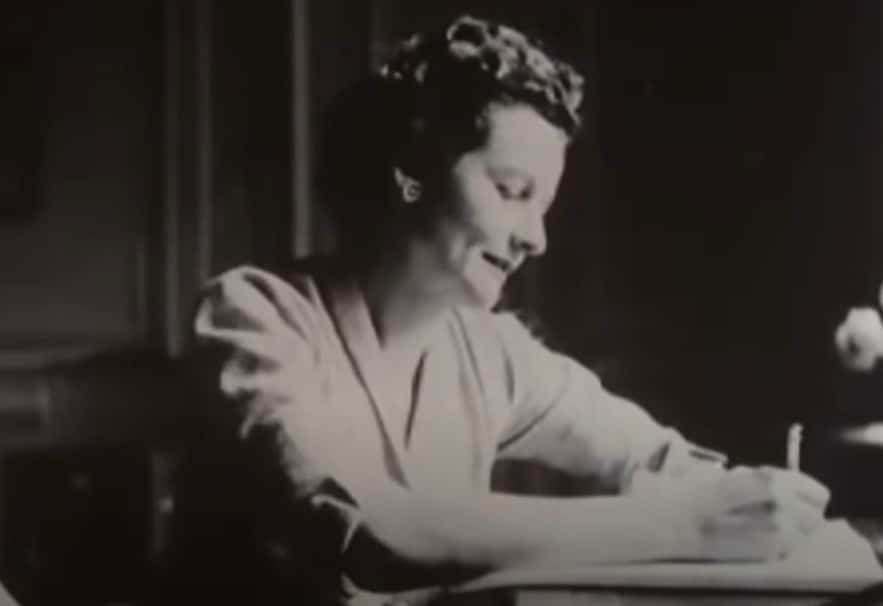 Nancy Mitford A Portrait by Her Sisters (1980), BBC
Nancy Mitford A Portrait by Her Sisters (1980), BBC
28. Her Sister Shot Herself
The very moment that Great Britain declared war against Germany, a near-fatal crisis hit the Mitfords. Nancy’s sister Unity was so beside herself that her home country was attacking her spiritual homeland of Germany, she shot herself in the head while living in Munich.
Incredibly, she survived, though with the mental capacity of a 10-year-old child. Her family took care of her for the rest of her life. Meanwhile, Nancy spent WWII helping Jewish families in the London Blitz and even reporting on her right-wing siblings to the government. But her personal choices weren’t as righteous.
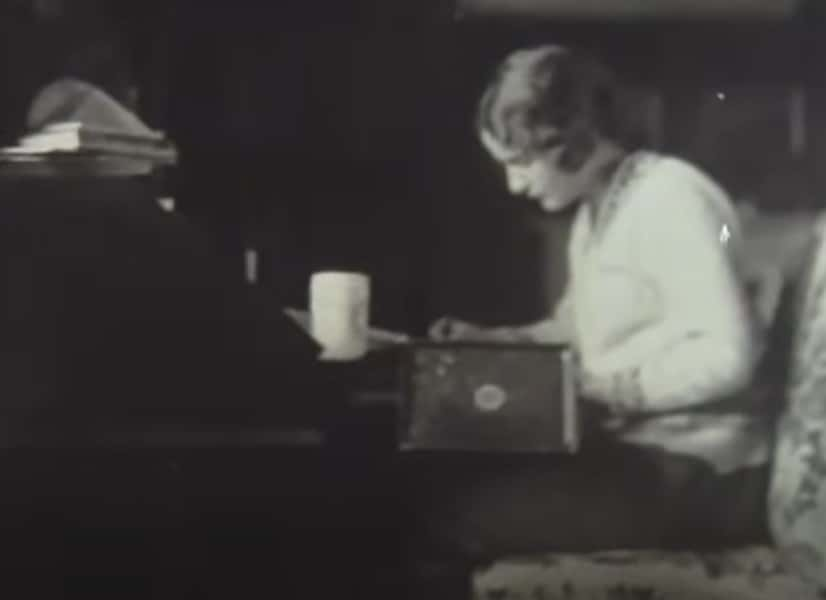 Nancy Mitford A Portrait by Her Sisters (1980), BBC
Nancy Mitford A Portrait by Her Sisters (1980), BBC
29. Her Husband Abandoned Her
In 1940, Nancy experienced yet another miscarriage, followed by a cold abandonment. Even as she was still convalescing, her husband Peter Rodd took leave to go serve overseas. He would spend the rest of WWII away from home.
Maybe it was the world conflict, maybe it was her outrageous family, or maybe it was the miscarriage and her failing marriage, but Nancy finally reached a breaking point.
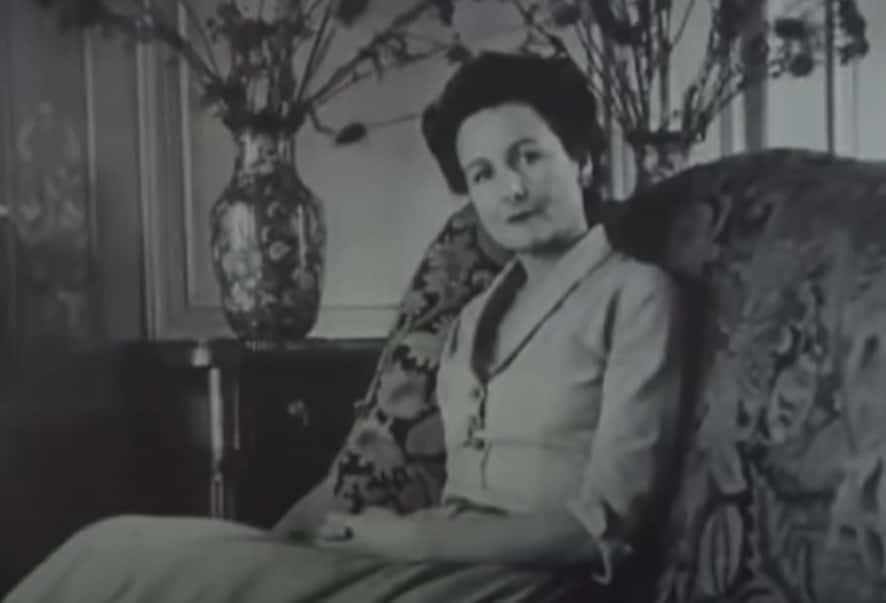 Nancy Mitford A Portrait by Her Sisters (1980), BBC
Nancy Mitford A Portrait by Her Sisters (1980), BBC
30. She Had An Illicit Affair
With Rodd gone and bombs falling on her home, Nancy crossed a line. Lonely and terrified, she hit a moment of weakness and had an affair with a Free French officer, Andre Roy. The tryst didn’t last long, but it did have lasting effects. A handful of weeks later, Nancy found out she was pregnant again, this time with Roy’s child.
As we’ve seen before and will continue to see, for every misstep a Mitford made, karma seemed to come for them double. Nancy now found this out first-hand.
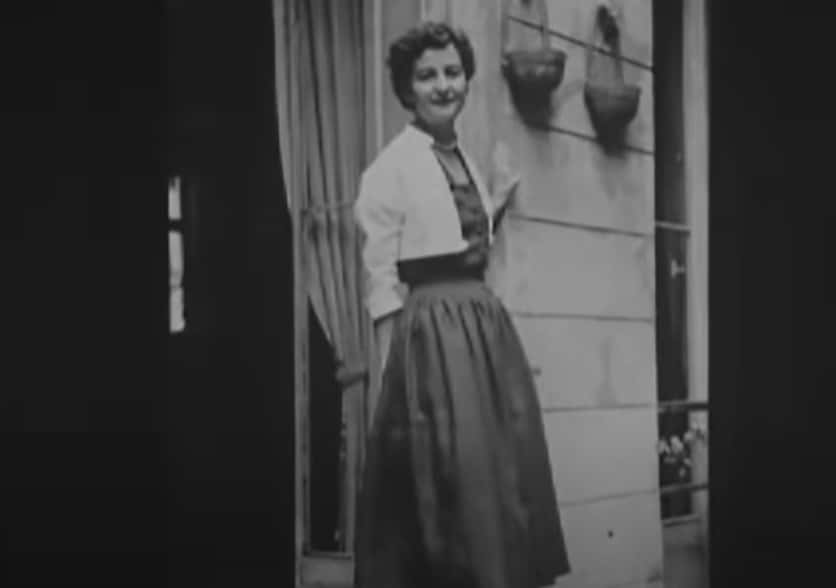 Nancy Mitford A Portrait by Her Sisters (1980), BBC
Nancy Mitford A Portrait by Her Sisters (1980), BBC
31. She Underwent A Traumatic Procedure
As with her first two pregnancies inside of her marriage, Nancy miscarried this child too. But this time, the consequences were dire. The miscarriage came with severe and dangerous complications, and in November of 1941, Nancy had to undergo a hysterectomy to ensure her physical safety.
The ordeal left her a shell of her former self, and nowhere near the Bright Young Thing she had once been in her glowing youth. Following this trauma, Nancy was desperate for a change. She got one…just maybe not the right one.
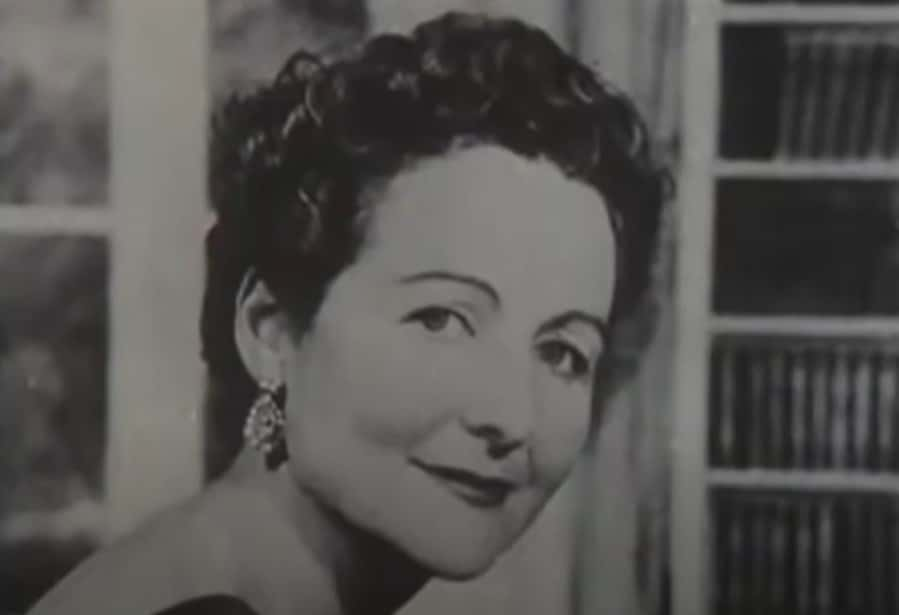 Nancy Mitford A Portrait by Her Sisters (1980), BBC
Nancy Mitford A Portrait by Her Sisters (1980), BBC
32. She Fell Head Over Heels
As Nancy recovered from her third miscarriage in almost as many years, she worked a humble job at a bookshop, hoping to reset her life and her habits. But then another whirlwind came and knocked her off her feet. In 1942, she met yet another French officer, Gaston Palewski, a colonel who was in Charles de Gaulle’s inner circle.
Mitford was instantly smitten in a way she hadn’t been since Hamish St Clair Erskine all those years ago. It felt like a new beginning, but it was really the same old nightmare.
33. She Loved Horrible Men
Gaston Palewski was dashing, brave, and utterly fascinating to Nancy, but he was also carrying some serious red flags.
For one, his rampant and constant womanizing was so bad, he had permanently hurt his chances at a successful political career—which, given that we’re talking about a white man in the French service in the 1940s, probably means he was doing a lot of womanizing. Only, that was the least of Nancy’s worries.
34. She Was In Unrequited Love
Everyone’s allowed to have a little fun now and then, and perhaps Palewski could be forgiven for wanting to gather those rosebuds while he could in the midst of fighting in WWII. Except, the real problem was that, as per usual, Nancy was far more in love with her beau than he was with her. She considered him the love of her life, while he—well, you’ll see.
35. She Snuck Around
Nancy had a reputation to uphold in her snooty aristocratic circles, and she and Palewski had to keep their affair strictly hush-hush for more than half a year while they both lived in London. When Palewski left to serve in Algeria that coming May, they continued their tryst through correspondence that Nancy mostly kept alive and Palewski tolerated.
Still, Nancy was virtually alone again and needed some distraction. She got much more than she bargained for.
36. Her Parents Split Up
The Mitford siblings weren’t the only ones tearing themselves apart during WWII; Nancy’s parents were also coming apart at the seams. Nancy’s father David, after dallying with more right-wing ideas, became staunchly anti-German and patriotic after the start of the conflict.
Meanwhile, her mother Sydney decided to stand behind Diana, Unity, and their horrible obsessions. By 1943, the strain was too much, and the couple separated. The Mitfords, in one sense, were no more. And then came another blow.
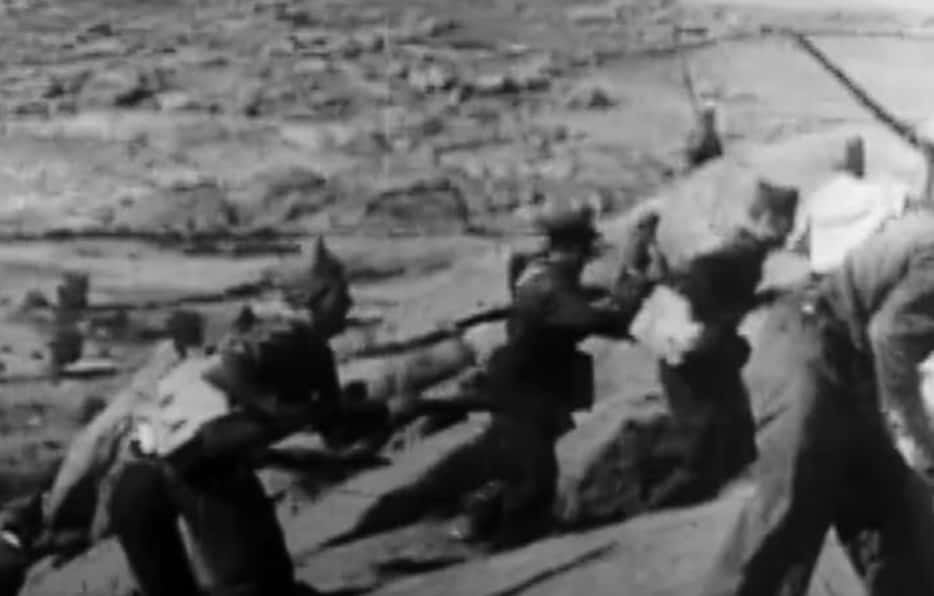 A Tale of Two Sisters, Jessica and Diana Mitford (2017), 3DD Productions
A Tale of Two Sisters, Jessica and Diana Mitford (2017), 3DD Productions
37. Karma Came For Her Brother
In 1945, Nancy got horrific news. Her brother Tom, was, like his sisters Diana and Unity, staunchly pro-German. Because of this, he had refused to fight in the Rhineland, but did agree—like the racist he also was—to fight for Britain against Imperial Japan. It didn’t go well.
Once more, cruel karma came for a Mitford: Tom died in action while serving in Burma just weeks before the end of WWII. The Mitfords had just lost their son and heir. Nancy was about to lose even more.
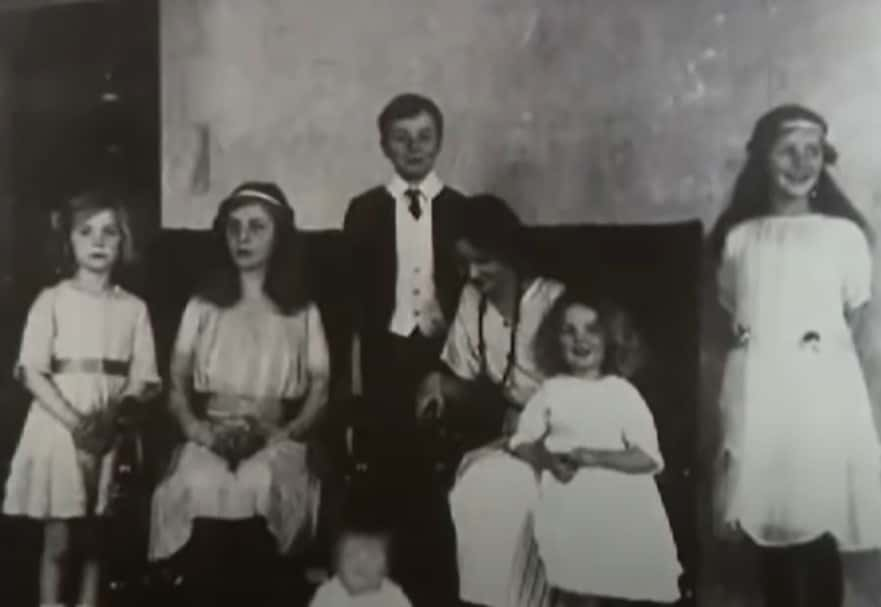 Nancy Mitford A Portrait by Her Sisters (1980), BBC
Nancy Mitford A Portrait by Her Sisters (1980), BBC
38. She Had A Muse
With WWII wrapping up, Nancy ended up publishing one of her most famous novels, The Pursuit of Love, which was partially inspired by her illicit relationship with Gaston Palewski. In a traumatized world, this little slice of warm British living energized the people, and the novel was a critical and financial success. But it also made the next phase of Nancy’s life incredibly awkward.
39. Her Marriage Was Over
In 1945, Nancy’s long-gone husband Peter Rodd returned at last from WWII for good, but he met a very different woman than the one he’d left. Nancy and Peter had to reach an uncomfortable truth: Their marriage was now over in all but name, and it was time to live separate lives.
Without further ado, Nancy left England for good and moved to Paris, France. But her reasons were hardly liberating.
40. She Would Do Anything For Love
Nancy had loved Paris since she was a young debutante, but she wasn’t there to be free and easy, oh no. She was there, at least in large part, because her lover Gaston Palewski was there. Shortly after moving to Paris, she settled in on the Left Bank, conveniently close to Palewski’s residence.
To be fair to Nancy, these next years were likely some of the happiest of her life. But on paper, they were also the most pitiful.
41. She Took A Backseat In Her Relationship
While in Paris, Nancy got busy writing, producing Love in a Cold Climate as a sequel to The Pursuit of Love. It was another professional achievement, with her friends and critics all praising her work—but her personal life left much to be desired.
Namely, her whole downtime revolved around Gaston Palewski’s busy schedule. Unfortunately, he repaid her with betrayal.
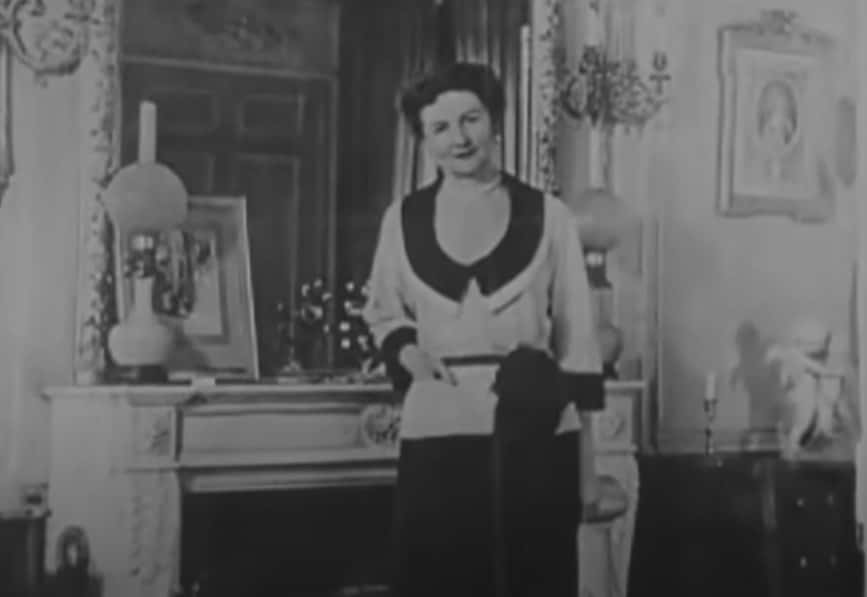 Nancy Mitford A Portrait by Her Sisters (1980), BBC
Nancy Mitford A Portrait by Her Sisters (1980), BBC
42. The Love Of Her Life Betrayed Her
Palewski loved Nancy in his own way, but he didn’t think this meant he had to stop seeing other women. The military man engaged in several affairs throughout the course of their relationship, with many of those women taking precedence in his calendar of engagements over Nancy.
Heartbreakingly, she knew about these flings, even if she didn’t explicitly permit them. I wish I could say it got better. It didn’t.
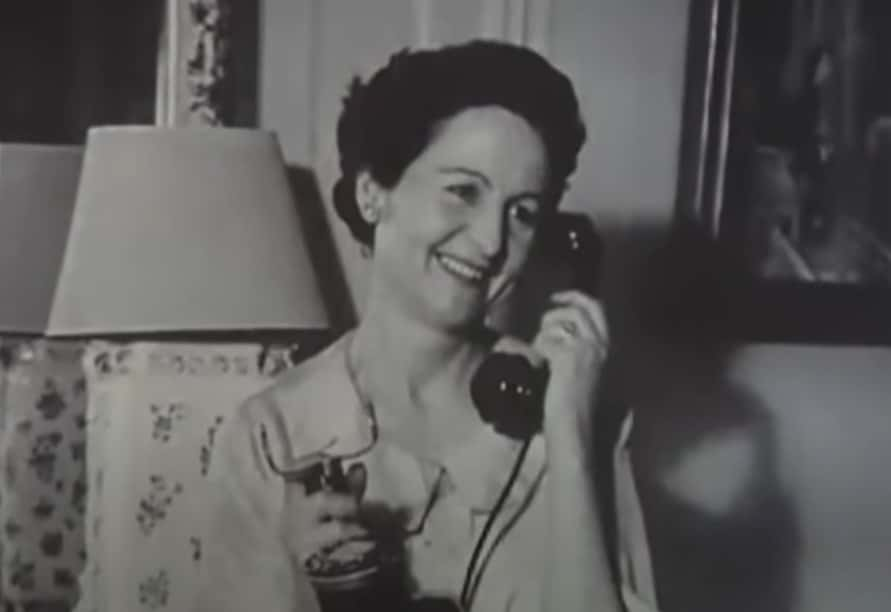 Nancy Mitford A Portrait by Her Sisters (1980), BBC
Nancy Mitford A Portrait by Her Sisters (1980), BBC
43. Her Lover Abandoned Her
By 1957, life threw another wrench in Nancy Mitford’s plans. Although she had gone to France partially for Palewski, his superiors soon stationed him in Italy. Their meetings now grew almost non-existent as he busied himself with his job and she with hers; indeed, he deigned to visit her only once a year. The toll this took on Nancy was quiet, but mighty.
44. She Put On A Brave Face
Nancy tried to affect a laissez-faire about her dire romantic situation, pretending she didn’t really care if she saw Palewski or not in her letters to him. Her friends, however, saw right through this. Her teasing of them turned sharp and “savage” even as she refused to confess her woes to them, too.
As one noted, "If she would only tell one she is unhappy one would do what one could to comfort her". She may not have admitted it then, but it was all downhill from there.
45. She Knew What She Was Doing
In truth, it’s not entirely fair to portray Nancy as a weak lover always waiting for Palewski’s call. In her two main novels about their relationship, The Pursuit of Love and Love in a Cold Climate, she uses him as a character and blatantly portrays him as a womanizer incapable of being faithful to his girlfriends. Palewski, for his part, had one more surprise in store.
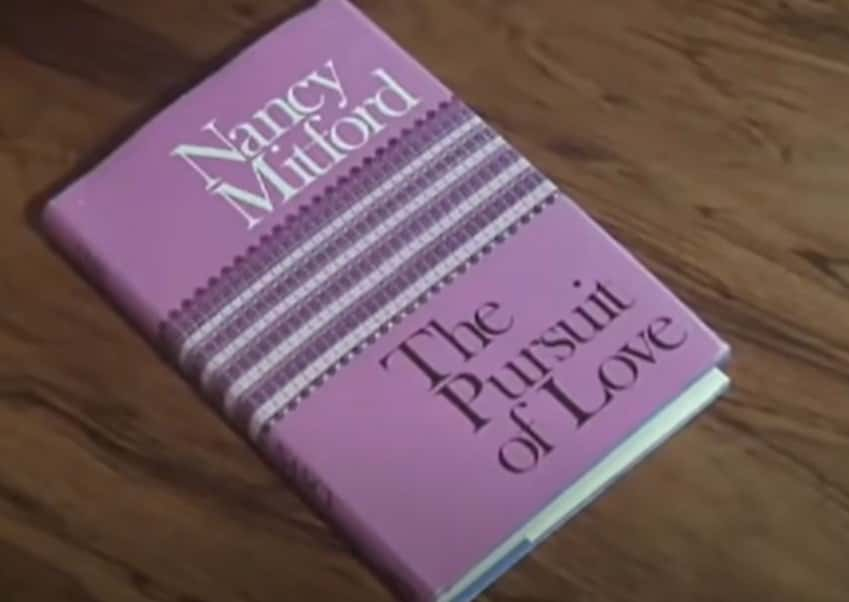 Nancy Mitford A Portrait by Her Sisters (1980), BBC
Nancy Mitford A Portrait by Her Sisters (1980), BBC
46. Her Partner Had A Sense Of Humor
Nancy’s friends and family learned quickly that if they wanted to get close to the writer, they would have to get used to her publishing their likenesses in best-selling novels. Palewski apparently understood the assignment, because he not only took no umbrage at her various portrayals of him, but he also insisted she use his real name when she dedicated The Pursuit of Love to him.
47. She Had A Gut-Wrenching Reunion
In 1962, Gaston Palewski miraculously came back to France for a different posting—but the effect was much different than Nancy was hoping. Instead of rekindling their love, Palewski still kept her on a leash, only seeing her when it suited him, which was still rare. Then in the late 1960s, it became clear what Palewski was really doing with his time.
48. There Was Another Woman
Around the time that Nancy was pining for him long-distance, Palewski got together with Henriette-Violette de Talleyrand-Perigord, yet another blueblood aristocrat if you couldn’t tell by her name. But this was far more than a fling. Henriette was married, but she and Palewski engaged in a years-long affair that even produced a love child. And then the love of Nancy’s life gave her a final parting insult.
49. She Got Awful News
In 1969, Nancy read a bone-chilling piece of news in the paper: Henriette had just divorced her husband, and she and Palewski were now married. Palewski hadn’t even had the decency to inform Nancy about his wedding, and Nancy was stuck once more acting like she didn’t care when her whole inner world was falling apart.
Perhaps the grossest part? Palewski still didn’t entirely cut ties with Nancy, and kept stringing her along for the next half a decade. Unfortunately, that was all the time she’d have.
50. She Declined Fast
By the 1970s, Mitford was just 68 but suffering from ill physical and mental health. Eventually, doctors diagnosed her with Hodgkin’s lymphoma—a fatal diagnosis she took with the classic Mitford stiff and wry upper lip. As she wrote to one friend, "It's very curious, dying, and would have many a drôle amusing & charming side were it not for the pain".
On June 30, 1973, she passed in her home in France. With the dedication he should have given her in life, Gaston Palewski was by her side at the end.

